20:50
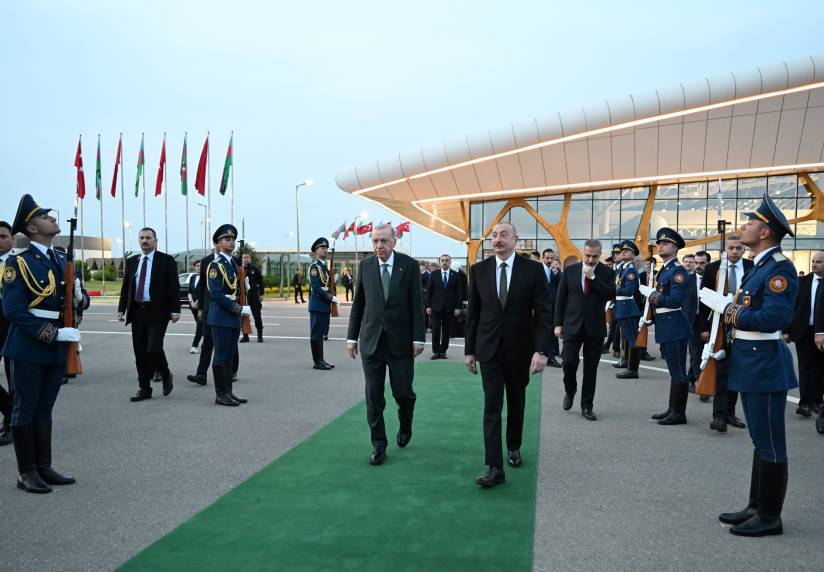
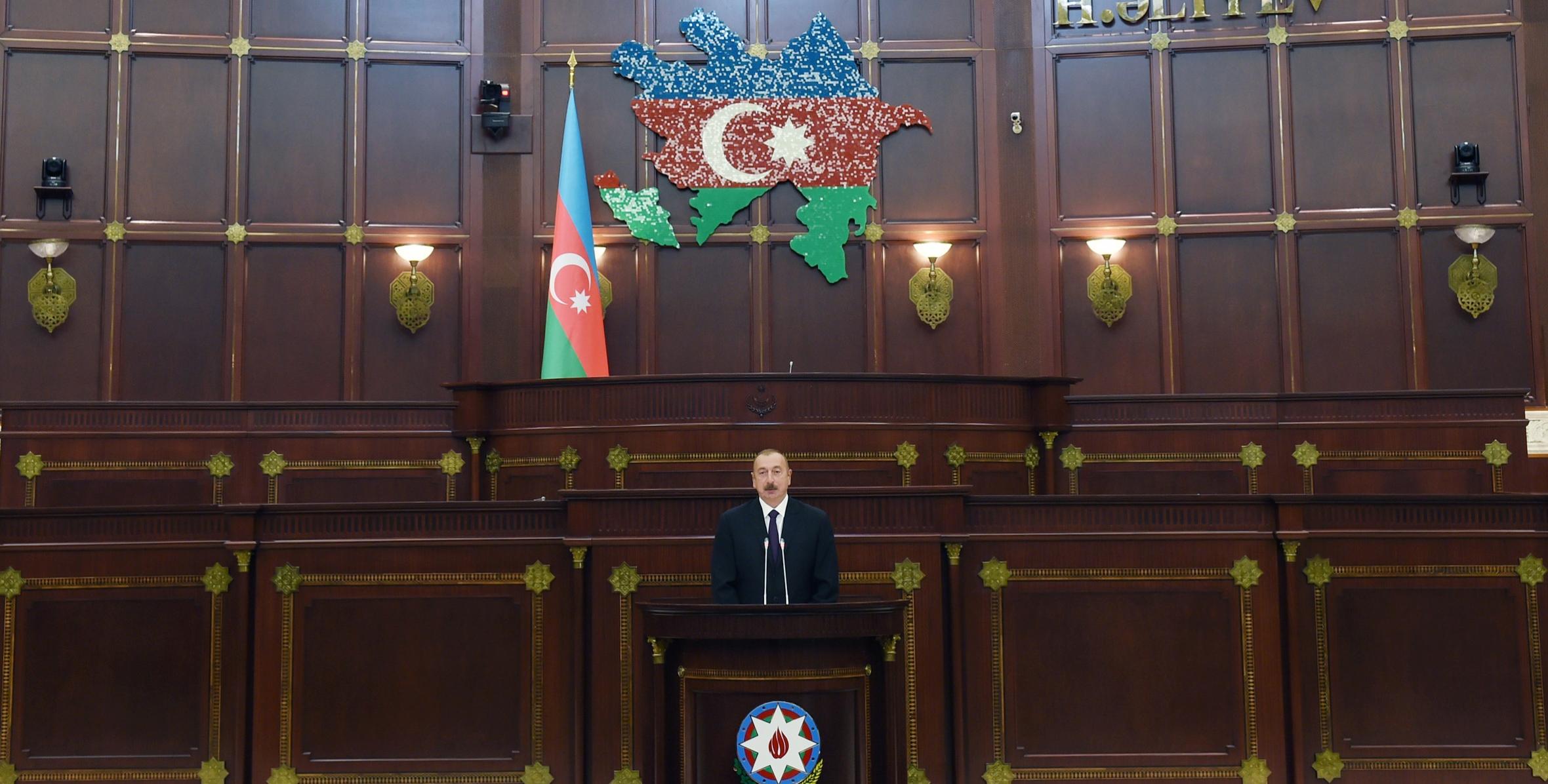
A solemn meeting marking the 100th anniversary of the Azerbaijani parliament has been held at Milli Majlis.
President of the Republic of Azerbaijan Ilham Aliyev attended the meeting.
The head of state made a speech at the meeting.
Speech of President Ilham Aliyev
- Dear parliament members.
Distinguished guests.
Ladies and gentlemen.
I sincerely congratulate you on the 100th anniversary of the establishment of Azerbaijani parliament.
Let me greet all foreign guests participating in our events and say "You are welcome!"
Four months ago, we officially celebrated the 100th anniversary of the Azerbaijani Democratic Republic. It was a historic event because a democratic republic was created for the first time in the Muslim world, and the Azerbaijani people are rightfully proud to have created it.
The Azerbaijan Democratic Republic was short-lived. Despite this, it managed to do a lot. State attributes were approved. Our present-day national flag and national anthem are the state attributes which were adopted by the Azerbaijan Democratic Republic. The Azerbaijani language was declared as the official language. The Azerbaijani National Army was established on 26 June. A few months later, the Azerbaijani National Army and volunteers, together with the Islamic Army of the Caucasus, liberated Baku from the invaders.
Very important decisions related to education were made, including the decision to establish Baku State University. Next year, we will celebrate the 100th anniversary of Baku State University.
Numerous laws were adopted – more than 200 laws, to be precise. Women are granted suffrage. In other words, the Azerbaijan Democratic Republic has done a lot in a short time. Today, the Azerbaijani people and the Azerbaijani state highly appreciate the activities of the Azerbaijan Democratic Republic and its founding founders. It is no coincidence that year 2018 was declared a "Year of the Azerbaijan Democratic Republic" by my order.
This year, we have held very important events associated with the 100th anniversary of the Democratic Republic both in Azerbaijan and in many countries. Activities are regularly held in Azerbaijan. Among them, of course, I want to specifically note the official events held in connection with 28 May. I should also note the grand military parade dedicated to the 100th anniversary of the Azerbaijani National Army. A few days ago, on 15 September, the second magnificent parade was held. The day of liberation of Baku from the invaders was officially celebrated marked. On that day, the Islamic Army of the Caucasus, the Azerbaijani National Army and volunteers liberated Baku from the invaders, and the Azerbaijani government was able to move from Ganja to Baku two days later. Our historic city, the ancient city of the Azerbaijani people Baku was returned to its masters.
Unfortunately, the Azerbaijan Democratic Republic, having lasted for only 23 months, fell and the Azerbaijani state lost its independence. This shows that it is much more difficult to preserve independence than to secure it. In 1991, as a result of the collapse of the Soviet Union, Azerbaijan gained independence for the second time in the 20th century. This was a historic opportunity, historical happiness because the Azerbaijani people lived with the dream of independence and freedom for centuries. Nevertheless, it was part of other states for many years. In 1991, we received the second opportunity. Unfortunately, the first years of our independence were accompanied by tremendous disasters for Azerbaijan. The country's economy was in a difficult situation, political developments aggravated the situation, Armenia's aggressive policy against Azerbaijan expanded, and internal strife prevented Azerbaijan from developing successfully. In 1992, after a coup d'état, the situation became even worse and Azerbaijan was faced with extremely difficult challenges. The forces that came to power in 1992 were leading it into the abyss. Political and economic crisis in our country was deepening. Armenia expanded its aggression, our lands fell under occupation, the economy was completely paralyzed, civil war broke out in the country and fraternal blood was shed. On those difficult and challenging days, the Azerbaijani people showed great wisdom and took the only right step by inviting Heydar Aliyev to take power. And this historic step became a turning point in the modern history of our country.
The Azerbaijani people always treated Heydar Aliyev with great sympathy and supported him. This is explained primarily by the fact that when he was leading Azerbaijan in the Soviet period, he gave an impetus to the successful development of our republic. At that time, Azerbaijan stood out amongst 15 republics of the Soviet Union. In addition to Russia, there were only two republics that were donors to others, and Azerbaijan was one of them. In the early 1980s, under the leadership of Heydar Aliyev, Azerbaijan moved from being the most backward republics to one of the most advanced ones. The well-being of our people had significantly improved. Another reason was that Heydar Aliyev took courageous steps in difficult times. After the 20 January tragedy, he immediately and officially condemned the crime committed by the Soviet government against the Azerbaijani people and left the ranks of the Communist Party. The Azerbaijani people saw a leader in him. The subsequent period was associated with the Nakhchivan Autonomous Republic. It was on the initiative of Heydar Aliyev that the flag of the Azerbaijan Democratic Republic was adopted as the official national flag at a session of the Nakhchivan Supreme Majlis. This was a historic event. I can say that this was one of the important steps leading to independence.
Heydar Aliyev was always together with the people. This was why the Azerbaijani people turned to him in hard and tragic times. On 15 June 1993, at a parliament session held in this hall, Heydar Aliyev was elected speaker of the Azerbaijani parliament. I want to repeat that this was a turning point in our modern history. After that, the situation began to stabilize. An end was put to civil war, illegal armed groups were disarmed, important steps were taken to establish a regular army, and Azerbaijan was able to overcome international isolation. Up until then, the Armenian lobby had created the impression in the world that that it was allegedly Azerbaijan that had unleashed aggression against Armenia. But it was actually our lands that were under occupation.
Heydar Aliyev has played an exceptional role in attracting large-scale investment to Azerbaijan. Yesterday, we celebrated the 24th anniversary of the signing of the Contract of the Century, without which it would be impossible to imagine the current dynamics of Azerbaijan’s rapid development.
Azerbaijan is successfully developing today, and I want to highlight the role of the Azerbaijani Parliament in this development. The Azerbaijani Parliament, both under Heydar Aliyev and today, has strengthened the independence of our country, ensured its accelerated development and contributed to it through its activities. Numerous laws have been adopted. These laws cover almost all areas of our lives. Our legislative framework meets the highest criteria. We have joined many international conventions, and the Azerbaijani Parliament has played a huge role in ensuring freedoms and implementing policies related to democratic development. The Azerbaijani Parliament plays an important part in improving the multiparty system in our country. Representatives of many parties are represented on the parliament. Of course, they have different views on various issues. However, I am very pleased that our MPs agree on matters related to national interests. They demonstrate patriotism and protect the state interests of Azerbaijan on the international plane. Parliamentary diplomacy plays an important part in the diplomatic sphere in Azerbaijan. I should note that Azerbaijani MPs work hard within the framework of international organizations. This is acknowledged by the Azerbaijani people. I monitor this as well, and I must say that a lot is being done. In many inter-parliamentary assemblies, Azerbaijani MPs communicate the truth about the processes ongoing in our country, on economic and political reforms, rigorously defend Azerbaijan if necessary, restore justice and do not allow unjustified accusations against Azerbaijan to lead to certain decisions.
Of course, the key area of activity of Azerbaijani MPs is to communicate the truth about the Armenia-Azerbaijan Nagorno-Karabakh conflict to the world community and to their counterparts. I think we have made great strides in this direction. In recent years, several organizations, including the Parliamentary Assembly of the Council of Europe and the European Parliament, have adopted resolutions supporting the territorial integrity of Azerbaijan in connection with the Armenia-Azerbaijan Nagorno-Karabakh conflict. Work in this direction will be continued. I am sure that the Azerbaijani Parliament will continue to make a positive contribution to both speeding up the processes within the country and enhancing the international authority of Azerbaijan.
The Armenia-Azerbaijan Nagorno-Karabakh conflict is the biggest injustice. Nagorno-Karabakh is ancient and historical Azerbaijani land. Azerbaijani people have lived and worked on these lands for centuries. Historical place names, historical monuments on these lands and our national heritage are evidence that Azerbaijani people have lived on these lands for centuries. They are under occupation today. Armenia has occupied not only Nagorno-Karabakh, but also seven districts adjacent to it. The entire infrastructure on these lands has been destroyed. Photographs of our destroyed cities are published on the Internet, so everyone can see them. The Armenians have looted all our national riches, museums. They have destroyed our historical monuments, mosques. A war crime has been committed against the Azerbaijani people – the Khojaly genocide. In one night, the Armenians brutally killed more than 600 innocent people, including more than 100 women and over 60 children. Today, parliaments of more than 10 countries have officially recognized the Khojaly genocide, and this process will be continued.
All international organizations have adopted decisions and resolutions related to the conflict. Among them, of course, I would like to highlight four resolutions of the UN Security Council. These resolutions explicitly state that Armenian armed forces must immediately and unconditionally withdraw from the occupied lands. For more than 20 years now, Armenia has been spurning these resolutions, ignoring them, thus continuing its aggressive policy. Unfortunately, international organizations do not apply any sanctions against Armenia either. I believe the time has come for serious measures to be taken against the invaders – this would be fair. We should also pay attention to the implementation mechanisms of international organizations in connection with this issue. If resolutions of the world’s supreme body, the UN Security Council, are not implemented, then, of course, the authority of this body will not be high. There is only one way of resolving the conflict. Armenian armed forces must withdraw from our lands and Azerbaijan must restore its territorial integrity. After that, there will be peace in the region. The territorial integrity of Azerbaijan is recognized by the whole world. All countries support the territorial integrity of Azerbaijan, and Nagorno-Karabakh is an integral part of it.
I believe that the new leadership of Armenia should seriously amend its position on this issue in the coming period because the very contradictory and sometimes absurd ideas being expressed in Armenia today serve to further exacerbate the conflict, not resolve it. Azerbaijan will not deviate from its principled position. Nagorno-Karabakh is ancestral and historical Azerbaijani land. It is Azerbaijani land also from the point of view of international law. The sovereignty and territorial integrity of Azerbaijan must be restored.
Despite the conflict and the tremendous humanitarian disaster – more than a million people have been affected by this conflict – Azerbaijan is on the path of development, and this development is quite dynamic. Armenia, on the contrary, is gradually weakening. The coup that took place in Armenia in the spring of this year actually demonstrates that the former regime had completely lost popular support. The regime that led Armenia for 20 years has fallen, which is further evidence of a collapse of its predatory policies. At the same time, international organizations should also conduct a serious analysis of this issue and ask themselves how it happened that international observers reacted positively to the parliamentary and presidential elections held in Armenia in recent years. Didn’t they know that all elections in Armenia were grossly falsified? Didn’t they know that respect for the former regime was equal to zero there? They certainly did, but for some reason they turned a blind eye to that. The new dictatorship emerging in Armenia today is conducting almost the same policy. Political violence is used against political opponents, they are arrested, there are reprisals against the media, press organs are shut down, public authorities issue orders regarding the arrest of political opponents, and these orders are heard in the whole world. But all international organizations, especially those related to the press, media freedoms and human rights, remain tight-lipped. The question is why international organizations do not react to the dangerous processes ongoing in Armenia. What is behind this? This must be seriously investigated. We are already well aware that some international organizations are pursuing a policy of double standards against Azerbaijan. We are used to this and are fighting it. Our struggle is based on very weighty arguments. As I have already noted, our MPs are using substantial arguments to express our position in connection with these dirty campaigns against us. The charges levelled against us are falsified by 100 per cent, are fictitious, based on double standards and pursue political ends. I must also say that these attacks and accusations have absolutely no effect on our political will, and they never will. Armenia, in its turn, openly pursues a policy of oppression, strangles the media, imprisons political opponents, the prime minister orders to arrest them, but no-one reacts to that. This issue provides food for thought. I think that international organizations must certainly answer our questions. If they don’t, this means they are in the same boat with this emerging dictatorial regime.
If we pay attention to the processes taking place in Armenia, we can inevitably see some parallels. In 1992, people from squares and streets came to power in Azerbaijan. They had no experience or political knowledge. They had no idea of the economy. In general, they did not even follow basic rules of conduct in society. As a result, the Azerbaijani people could tolerate such authorities for only one year, after which they were swept away from the political scene once and for all. We are seeing the same picture in Armenia today. Those who were shouting in the squares are now appointed to high posts. Those who have no experience whatsoever are now deciding the fate of Armenia. The steps taken by the new Armenian government show that these people have no knowledge or training, and pose a great threat not only to Armenia but also to the entire region. On the one hand, as I said earlier, the more the current Armenian government remains in power, the better for us, as it multiplies their problems. Armenia is already in crisis because of its own predatory policy. According to official statistics, the rate of poverty there reaches 30 per cent, but in reality, it is 50 per cent. There is pervasive unemployment, depopulation and exodus. There is no basis for economic development. No-one wants to invest there, the market is limited and there is no access to foreign markets. These existing problems coupled with their aggressive policies have actually led to the fall of the former criminal regime. But we are seeing that the new government is trying to follow the same path. There is only one way out of this difficult situation for Armenia – to vacate our lands. After this, conditions for their development may be created. If they wish to continue their aggressive policy, they should know that it will lead to nothing. It will end very badly for them.
Despite the fact that our lands are under occupation and we have more than a million refugees and IDPs, Azerbaijan is successfully developing and there are excellent prospects for further development. Nagorno-Karabakh will never be provided with any status outside the sovereignty of Azerbaijan. The Azerbaijani people and state will never allow for their historical, ancestral and legally-owned land to be separated from Azerbaijan. Armenia should abandon these dreams. The Armenian leaders should not deceive their people. We are using and will continue to use all the opportunities to restore our territorial integrity. Very important steps have been taken in this direction. As I have already noted, international organizations support our position. We are supported not only by the UN Security Council, but also by the UN General Assembly, the OSCE, the Parliamentary Assembly of the Council of Europe, the Non-Aligned Movement, the Organization of Islamic Cooperation, the European Parliament and other organizations. The Partnership Priorities document signed between Azerbaijan and the European Union this year states support for the sovereignty of Azerbaijan, the inviolability of its borders and territorial integrity. This is the position of the European Union. Neighboring states recognize and support our territorial integrity. The Organization of Islamic Cooperation has repeatedly adopted resolutions related to the conflict. All of them defend our position. So this is the international legal aspect of the issue. What do we see in real life? Armenia is a failed state. If a country is ruled by a regime of the criminal junta for 20 years – and we are talking of a state that has been independent for only 26 years – then how else can this state be described? Only as a failed state! In fact, they have failed as a result of their own aggressive policy, otherwise they could have taken advantage of Azerbaijan's opportunities. No initiative or project can be realized in the region without Azerbaijan. Our strength, political weight, economic potential and military power are gradually increasing. Our international positions are strengthening. Our policy today – I want to repeat that and this is no secret – is to completely isolate Armenia, weaken its economic foundations, if there are any foundations at all. Why? Because we want our lands back! We are asked to resolve the issue peacefully. We are also striving for that. But to do that, it is necessary to have a sober-minded side in front of you. We do not see such sober-mindedness. The irrelevant steps being taken in Armenia, the statements being made from high platforms will put this country in an even more difficult situation. We don’t care about that, but it is becoming a huge problem for conflict settlement today.
This is why we will continue to pursue our policy. Our economic potential is growing. Today, the difference between Armenia and Azerbaijan as like heaven and earth. Azerbaijan today is an economically developing country, while Armenia is a poor country which counts on others and lives at the expense of donations. Of course, we will continue to pursue our policy.
I want to reiterate that Azerbaijan is implementing a very successful policy related to international issues. Our relations with neighboring countries are at the highest level. Azerbaijan enjoys great respect within the framework of the Organization of Islamic Cooperation. We have signed documents on strategic partnership with nine countries of the European Union, and Partnership Priorities document was signed this year.
This is our successful foreign policy, as it has a positive impact on our internal development today. As for the economic sphere, there has been no other country in the world that would develop as rapidly as Azerbaijan over the past 15 years. Our economy has increased 3.2 times, and this growth continues to this day. It is no coincidence that our country, despite being only 26 years old, is ranked 35th in the world according to the Davos World Economic Forum’s report on economic competitiveness. Just imagine: there are more than 200 countries in the world and Azerbaijan is in 35th place. The competitiveness index covers all sectors, not only energy resources. Again, according to the Davos forum’s inclusive development index among developing countries, Azerbaijan ranks in third place. Azerbaijan is in 26th place on a global scale in terms of the level of infrastructure. We have created all this with tireless work and thanks to the unity between the people and the government. Therefore, our thoughts related to economic development are very encouraging and positive.
We have created a powerful army. This year Baku has two military parades – one dedicated to the 100th anniversary of our army and the other to the liberation of Baku from occupiers. I think that the opportunities we have demonstrated in the parades are quite impressive. According to international ratings, the Azerbaijani army is among top 50 armies on the world scale today, and this is a reality.
In other words, we will continue to develop our country by such policies. Today we give more preference to innovation and technologies. A few days later, Azerbaijan will put its third artificial satellite into orbit. Azerbaijan has been a member of the Space Club for several years now. Two of our satellites are already in orbit, and a third one will be put there soon.
As for our energy policy, its influence can be felt not only in our country. The projects being implemented at the initiative of Azerbaijan in the region and on the Eurasian continent are of great importance. We are connecting seas. We have linked the Caspian Sea with the Black and Mediterranean seas by oil pipelines, and Azerbaijan with Europe by a gas pipeline. The Southern Gas Corridor being implemented today is one of the biggest infrastructure projects in the region. Its total value is $40 billion. It is possible to say that this project will completely recreate the energy map.
Of course, Azerbaijan will continue to make the best of its geographical location. We have already turned into one of the transport centers, and this is a reality. The East-West and North-South transport corridors pass through the territory of Azerbaijan. They could have bypassed us too, if we had not invested a lot in this geography and not maintained excellent relations with neighboring countries. If a country does not maintain good relations with its neighbors, then how can it become a transit country? This is not possible. Therefore, our foreign policy is designed to further improve the domestic situation. At the same time, foreign policy plays an important role in ensuring security in Azerbaijan. There are no internal sources of threat in Azerbaijan. I have repeatedly said this. We protect ourselves against possible risks by our policies, including the successful foreign policy. At the same time, our contribution to global security is gradually increasing. In fact, not only to security. We are also making a great contribution to the inter-human and interreligious dialogue, which largely predetermines security. It is no coincidence that Azerbaijan today is globally recognized as a center of multiculturalism. This policy, first of all, is need for us. Representatives of all nations and religions live peacefully in Azerbaijan like one family. At the same time, this policy is necessary for the world because interreligious issues are gradually causing concern. Clashes, misunderstandings, discrimination, xenophobia – we can see all this in the world today. We are conducting our own policy and setting an example. The numerous international events held in Baku are highly appreciated by major international organizations, including the UN, UNESCO and other organizations.
We are celebrating the 100th anniversary of our parliament today. Of course, 100 years ago the Azerbaijani parliament could not fulfill its functions to the full. We were certainly an independent state, but we should know that our independence in 1918-1920 was incomplete. Azerbaijan was an extremely weak country. It was only taking its first steps as an independent state. There were quite a lot of problems in the country. I can say that the government could not fully control the country's territory. It is difficult to say that we could completely overcome international isolation at that time. Some did not recognize us. We know history well. The present-day Azerbaijan is a model of success on the world map. We are conducting a fully independent policy today. All the issues I have mentioned – all the achievements related to foreign policy, domestic policy and economy – serve the goal of further strengthening our independence. Independence is not only about state attributes. Can you pursue an independent policy or not? Can you do it successfully or not? Does this independent policy bring benefits to you or not? Answering these questions, we can say with confidence today that Azerbaijan, which conducts an absolutely independent policy, fully secures its national interests. The Parliament of Azerbaijan has an important role in these matters.
Dear friends, MPs, let me congratulate you on this remarkable event again and wish you continued success. Thank you.
X X X
Then photos were taken.
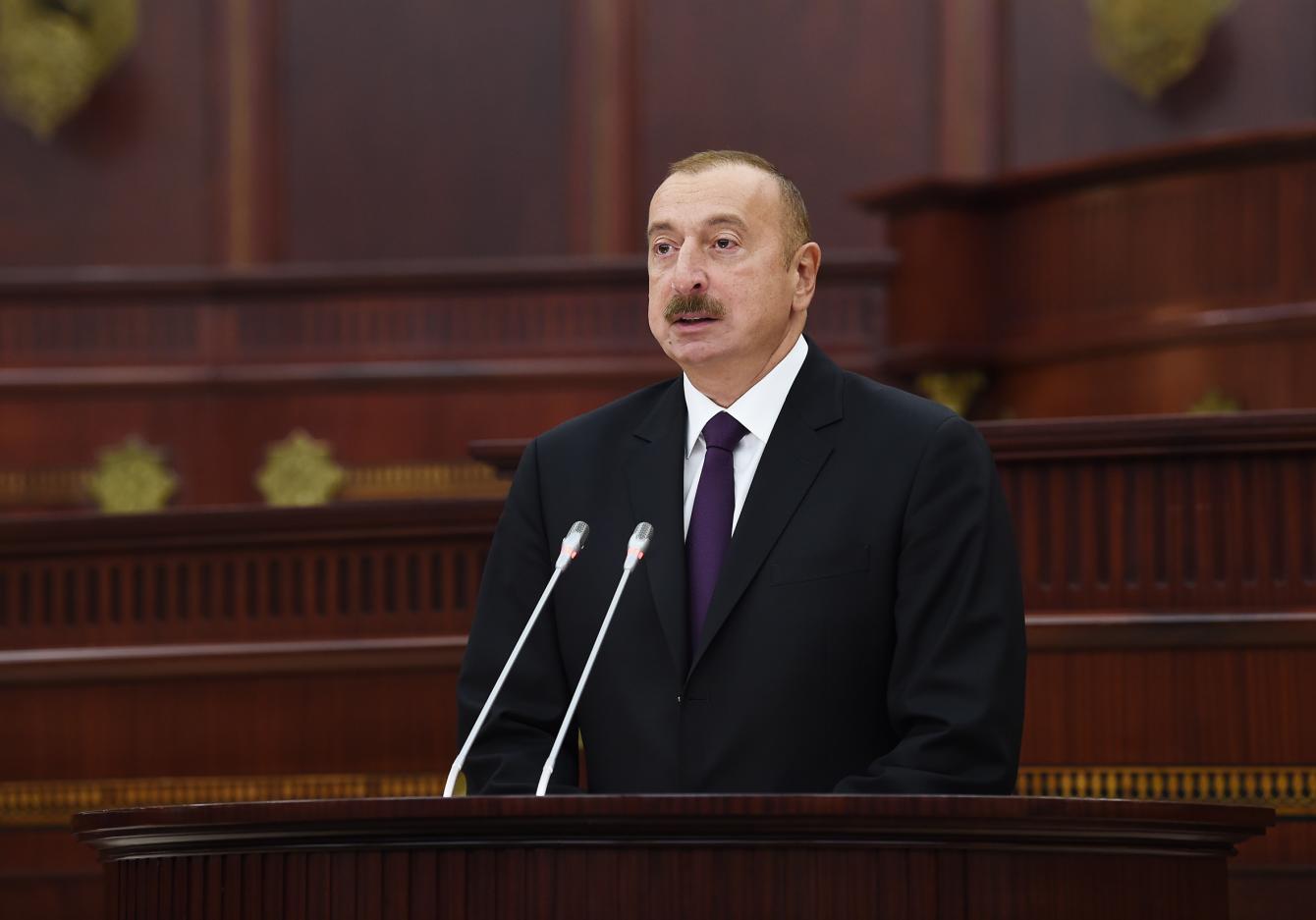
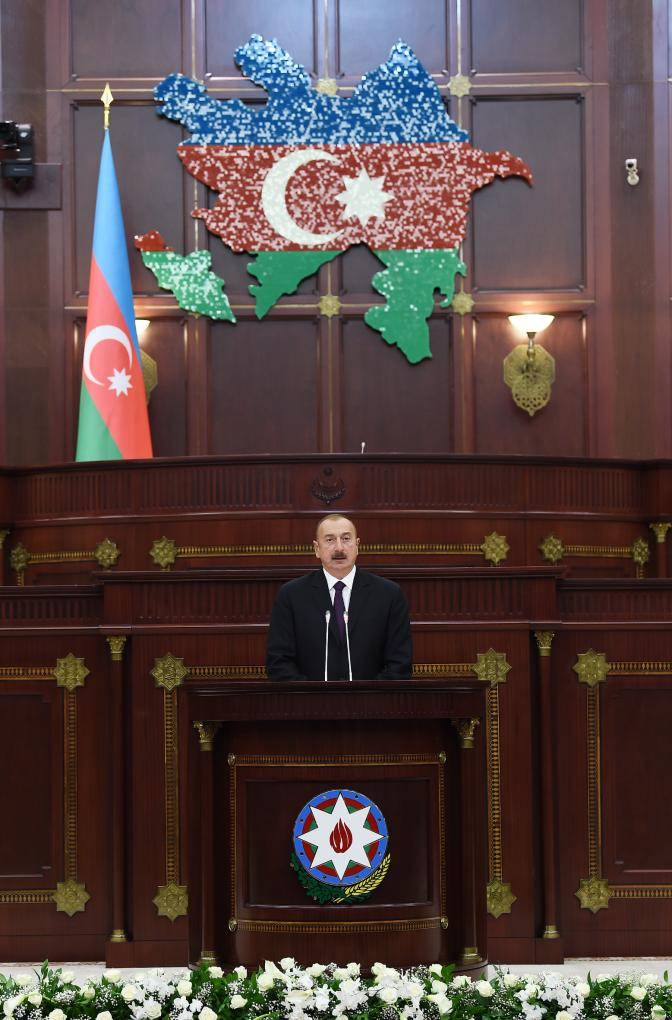
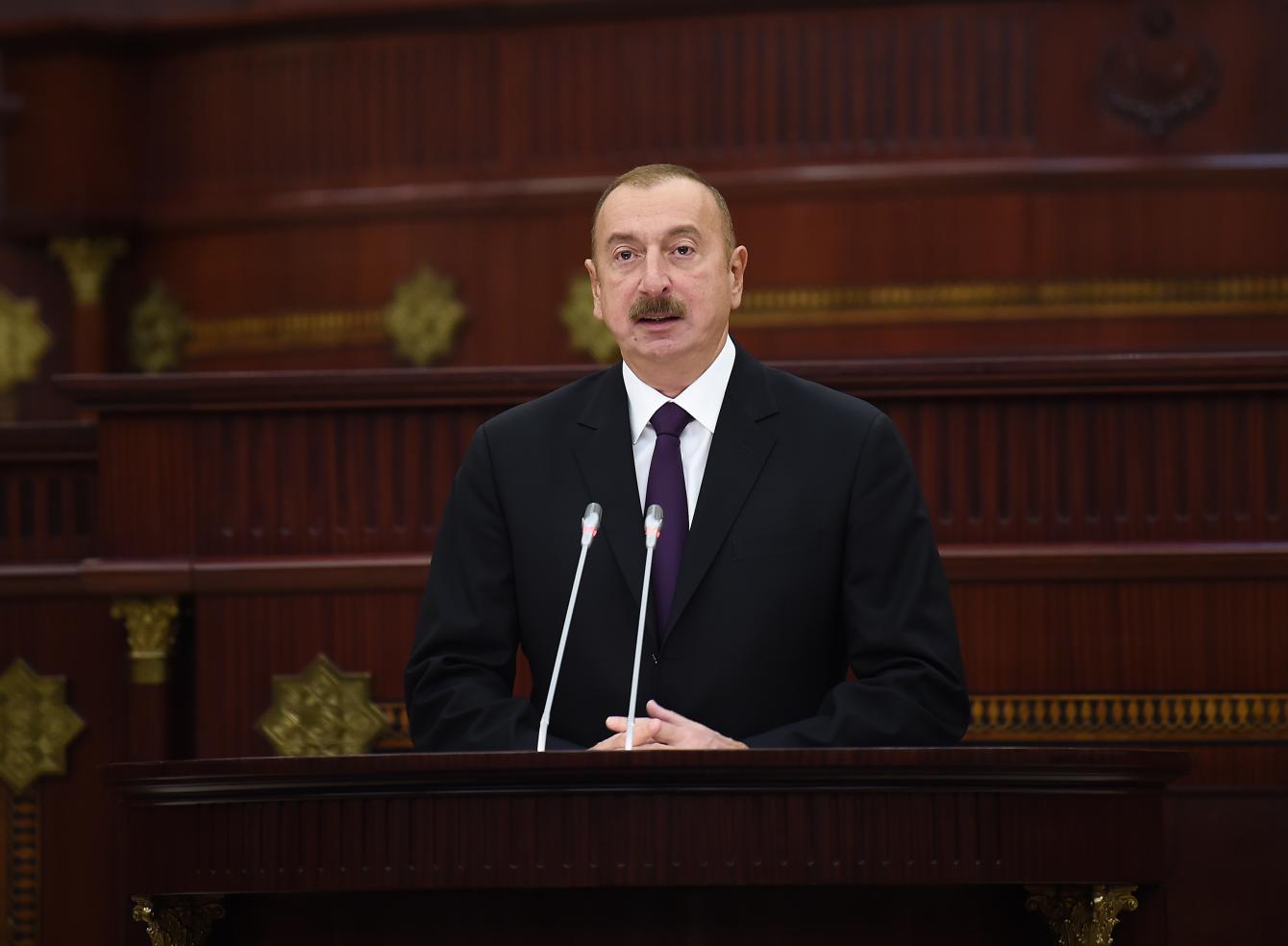
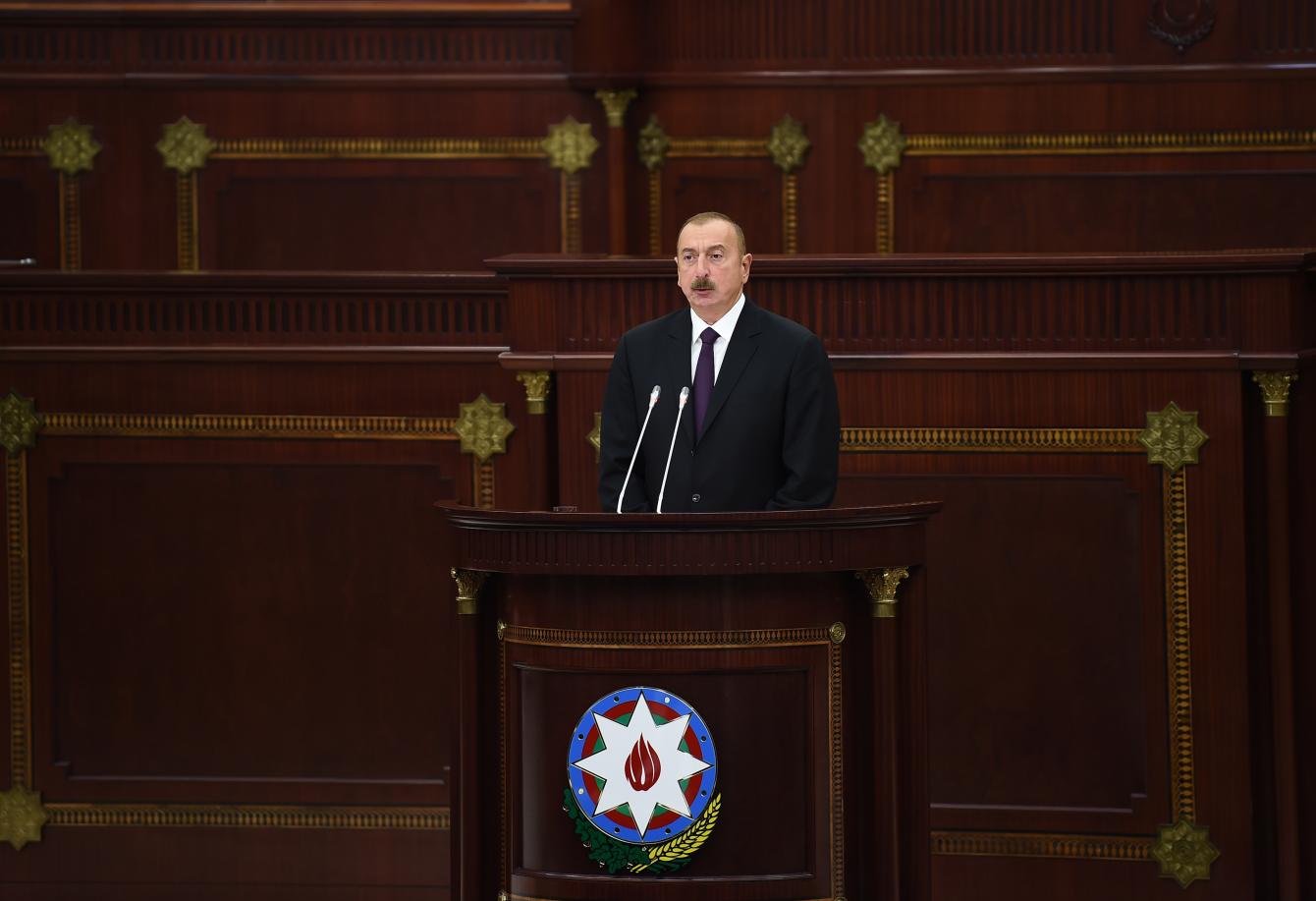
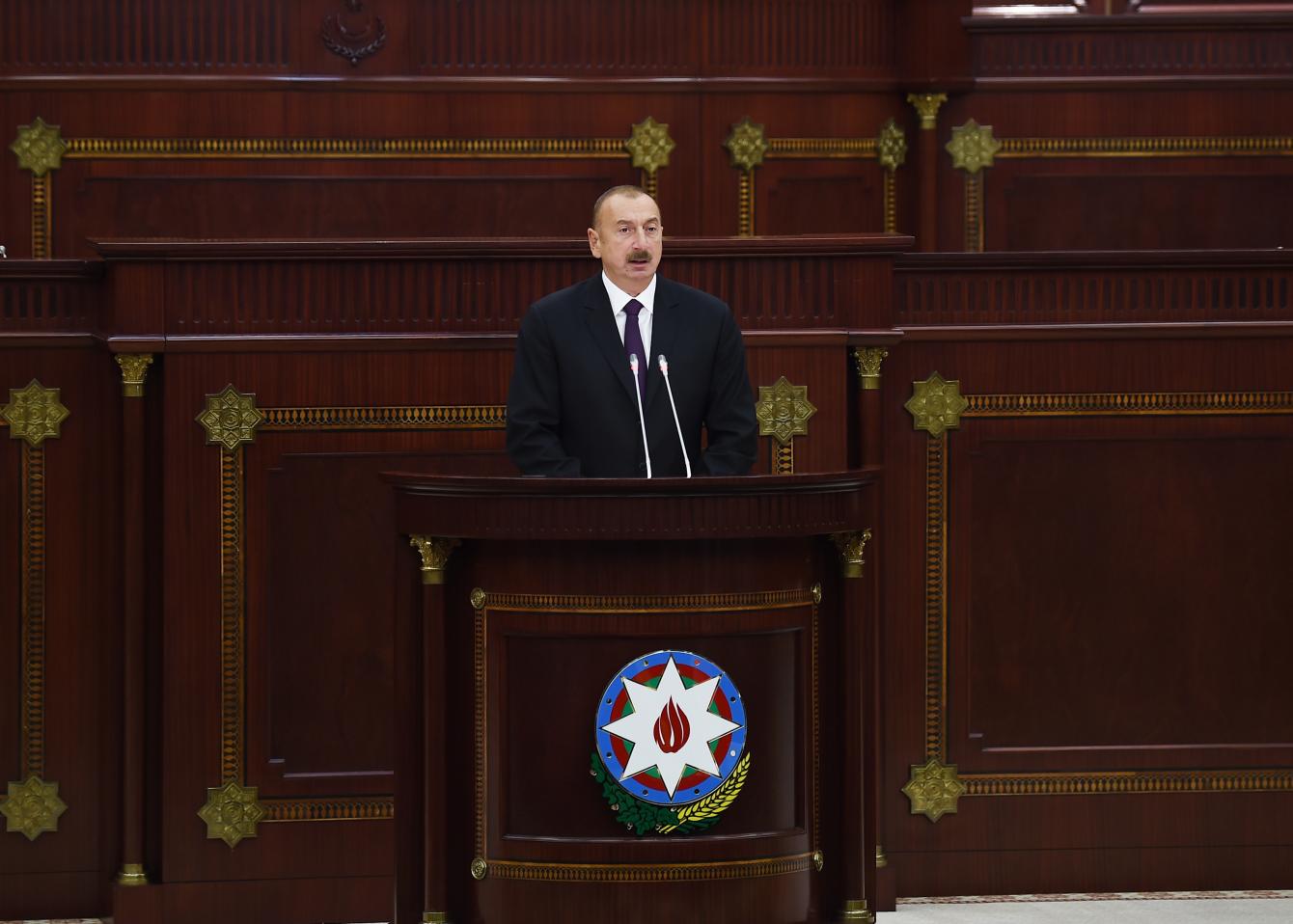
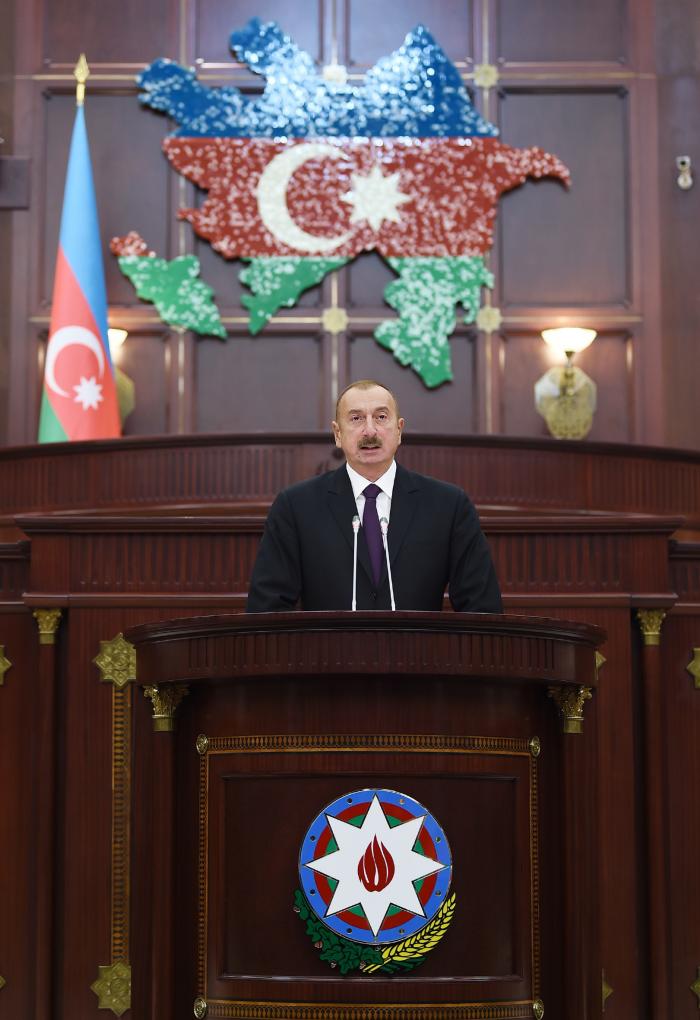
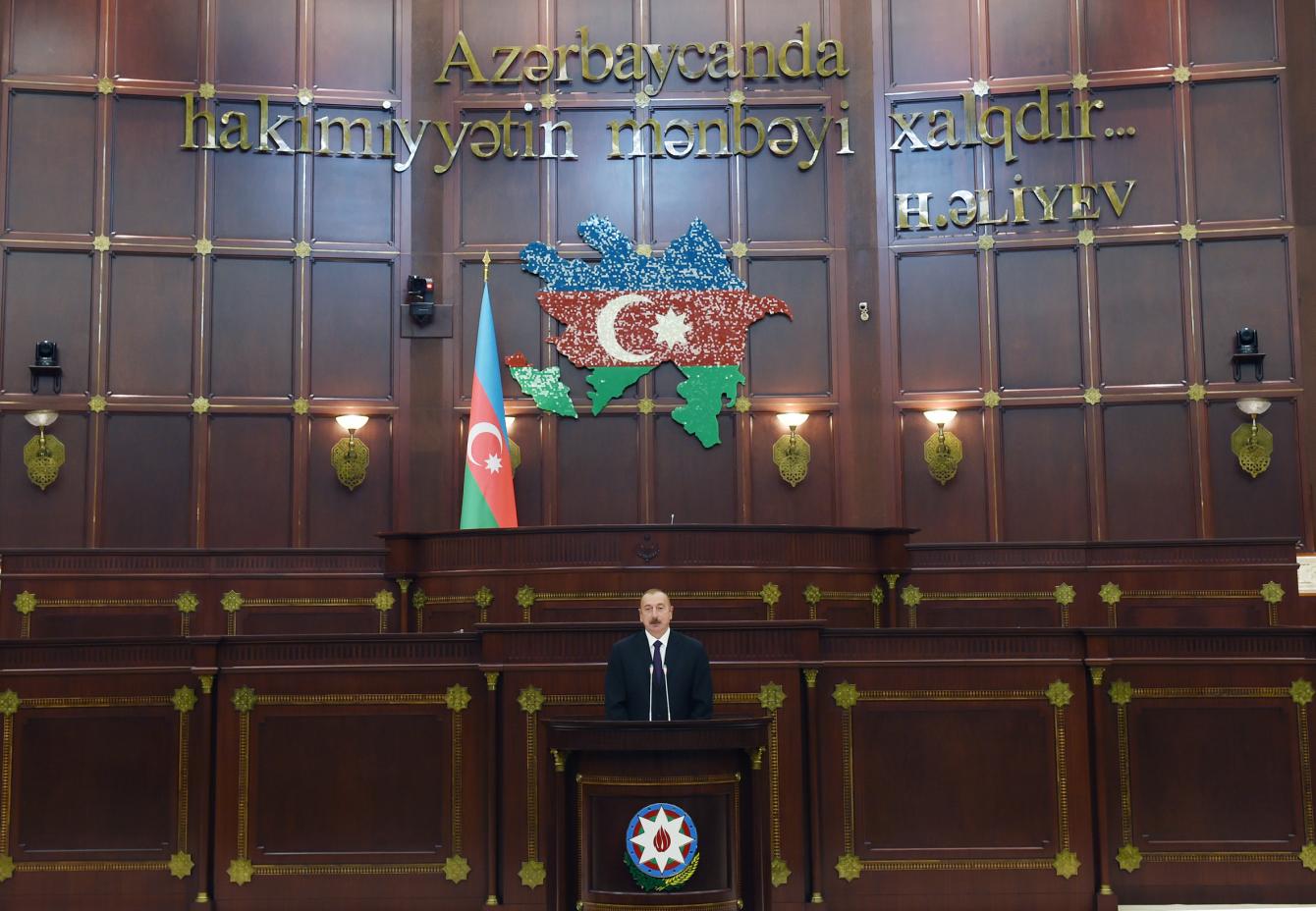
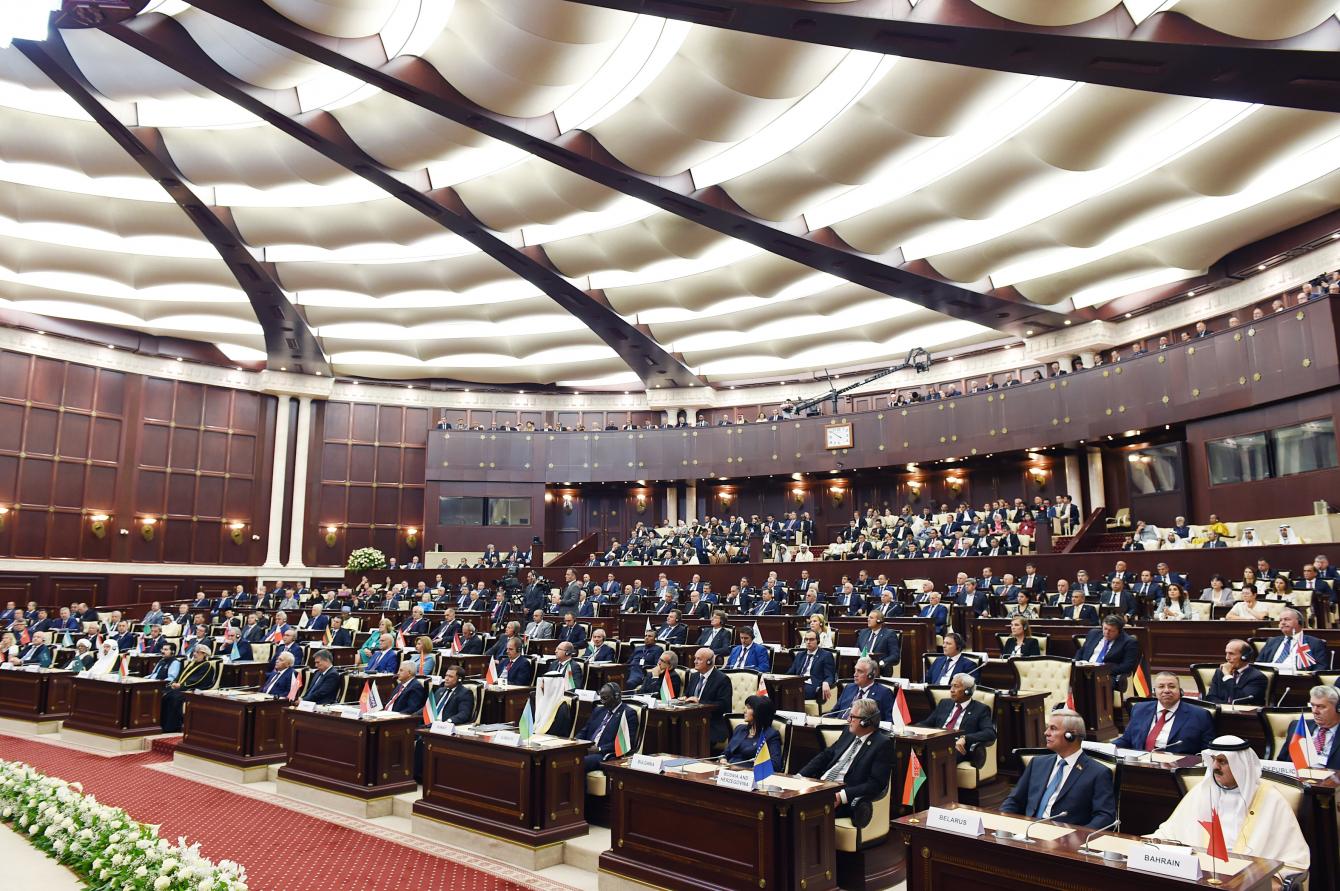
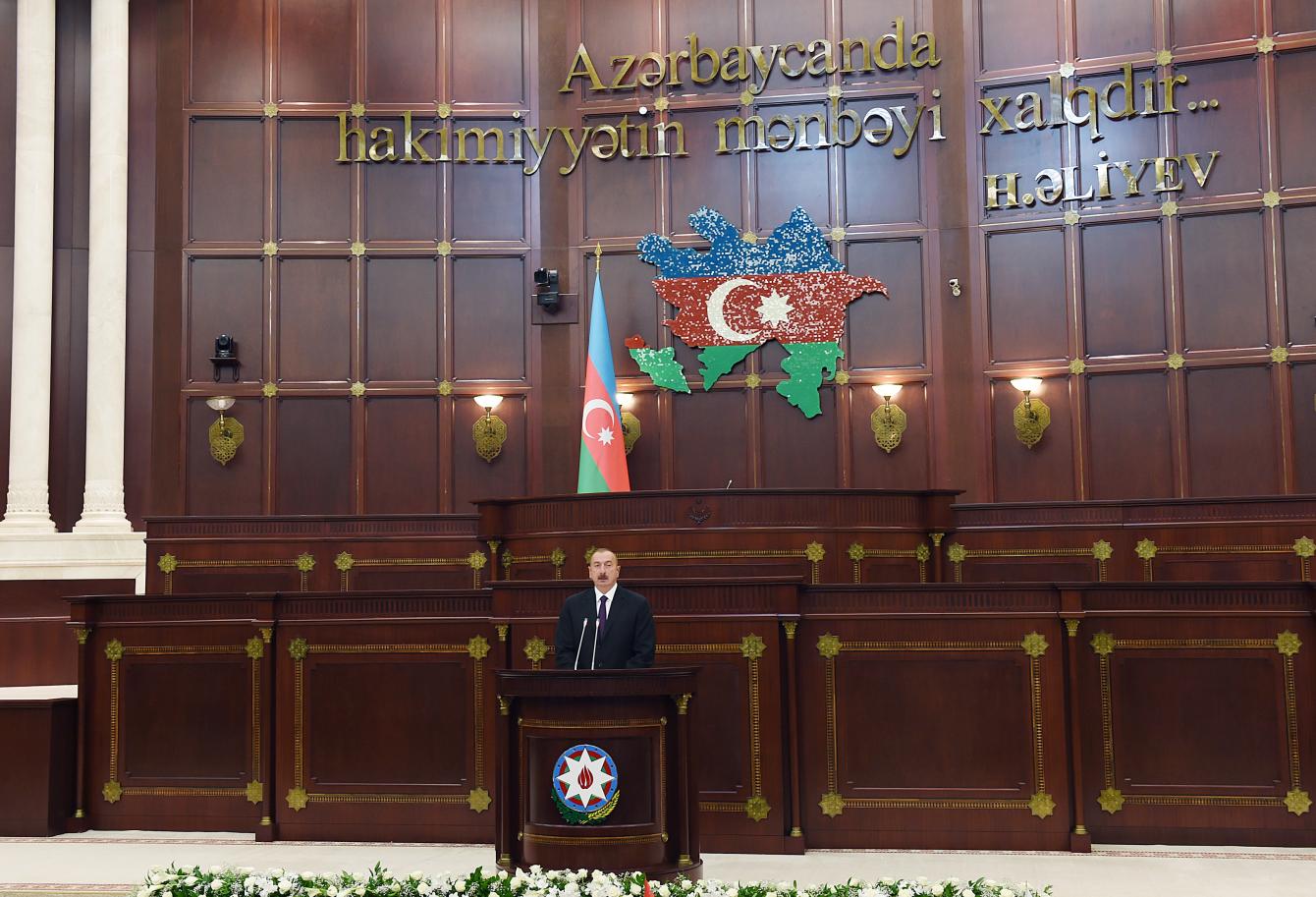
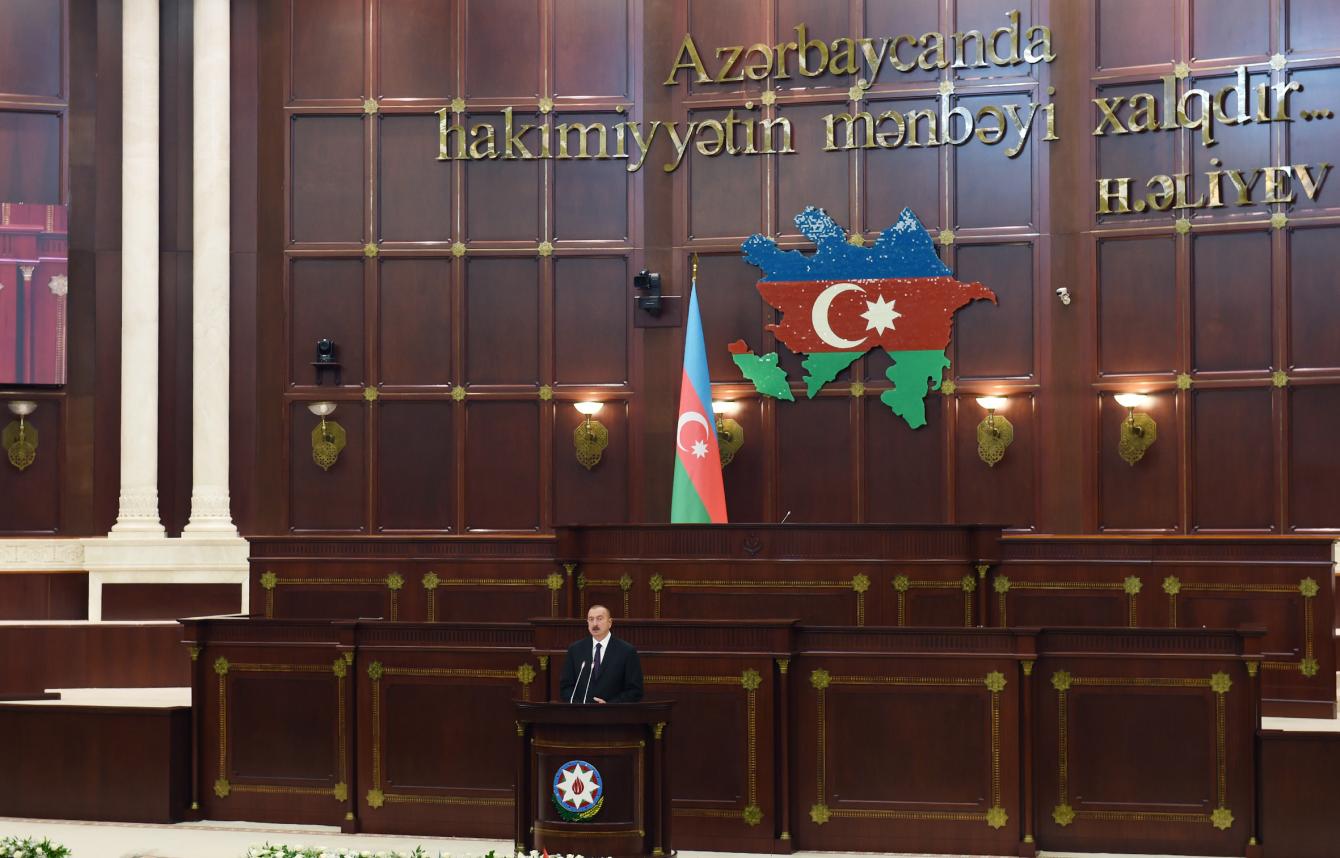
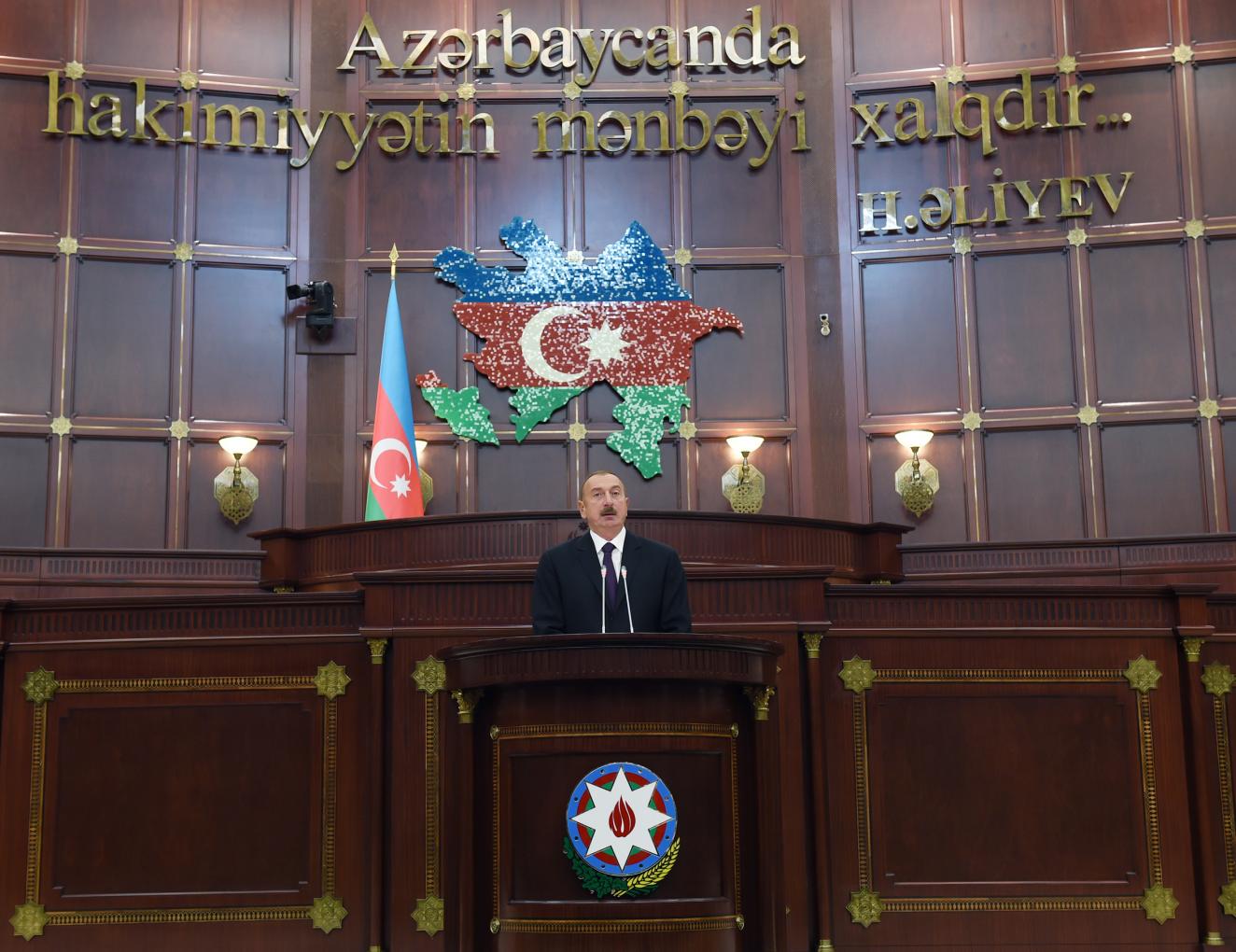
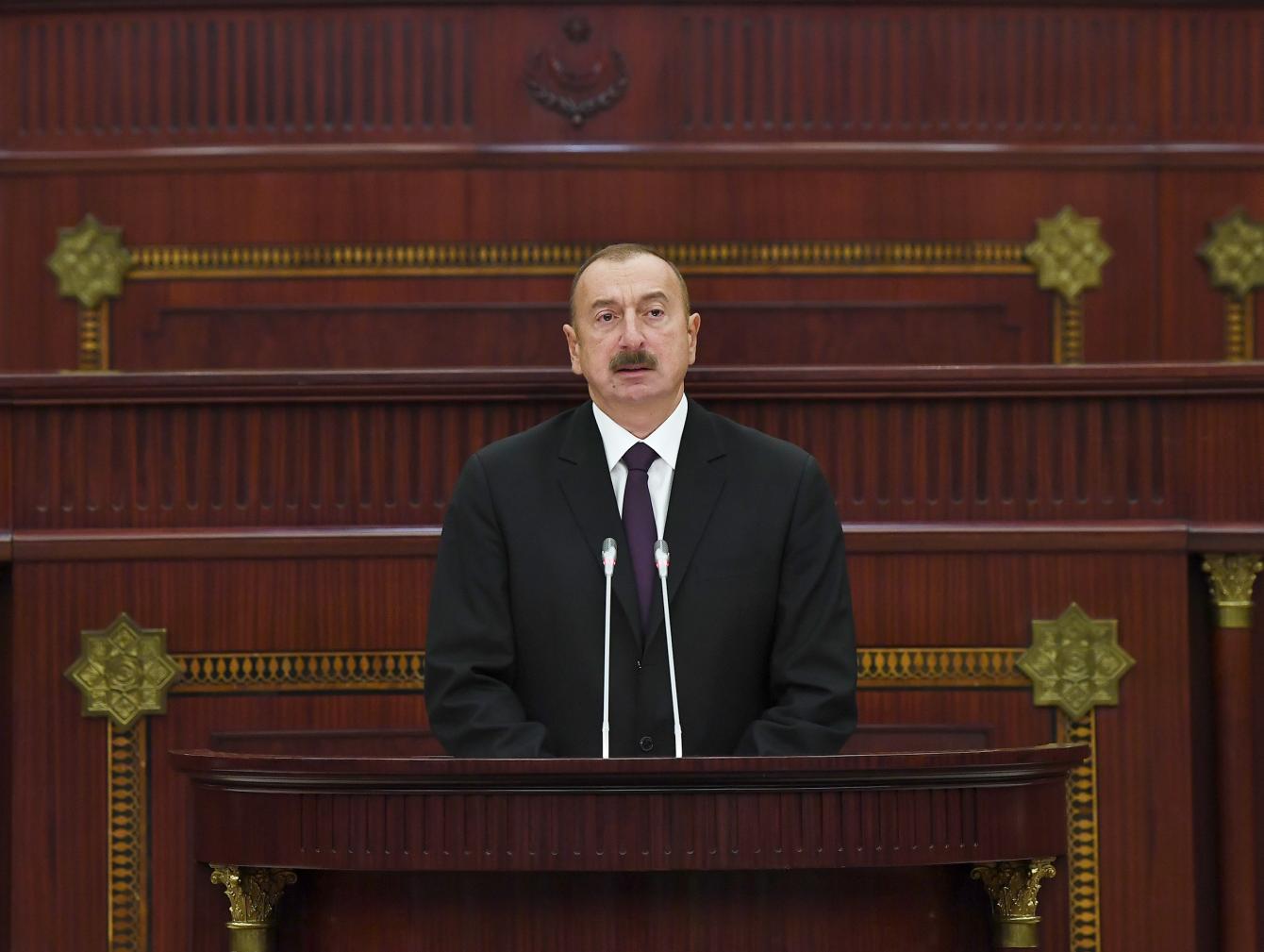
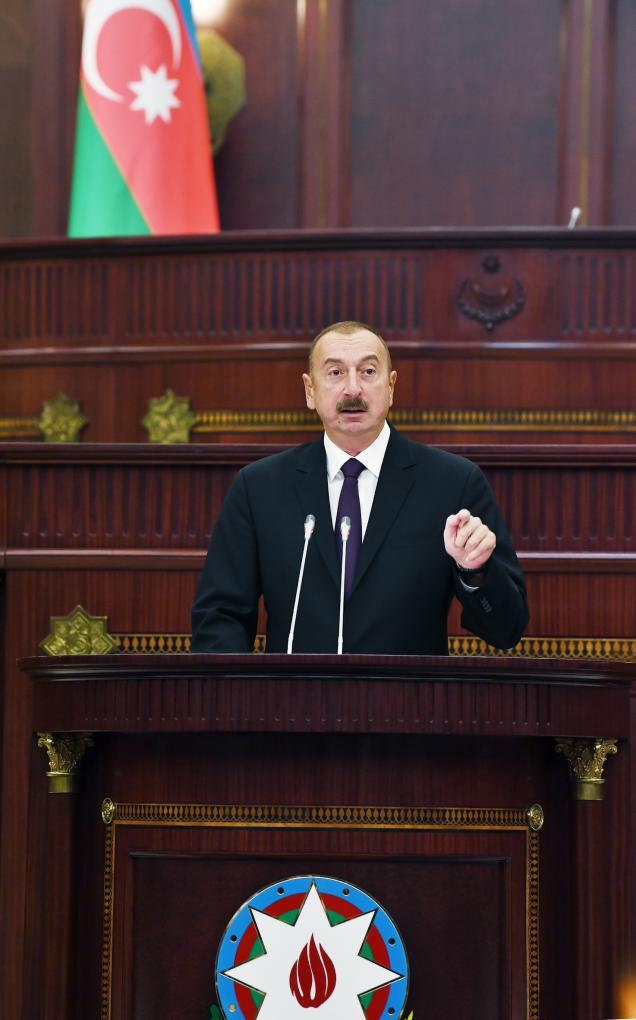
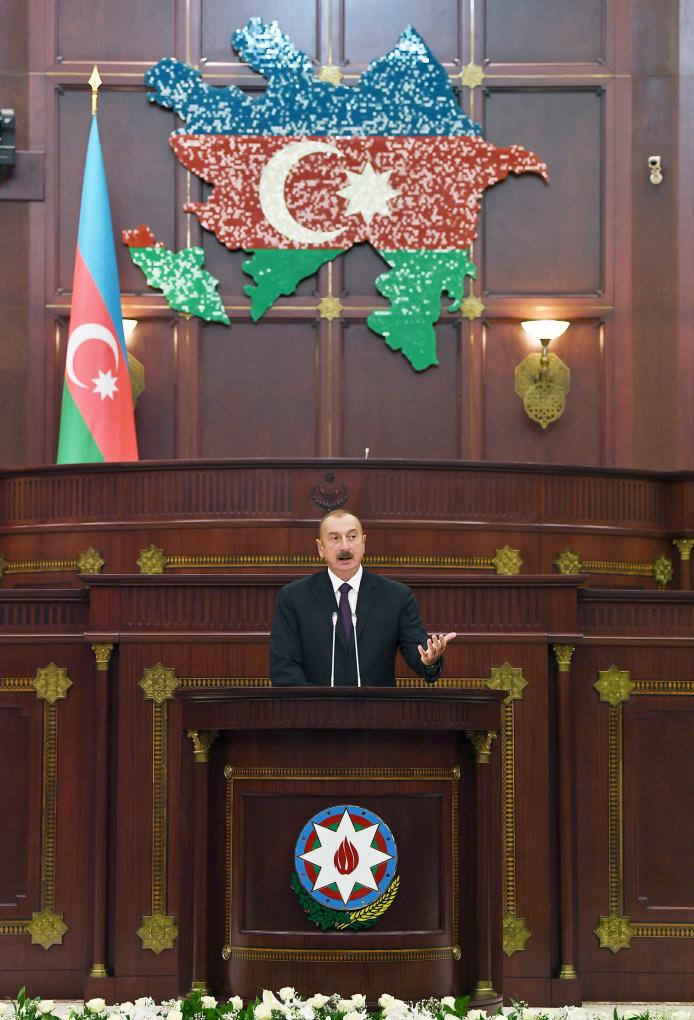
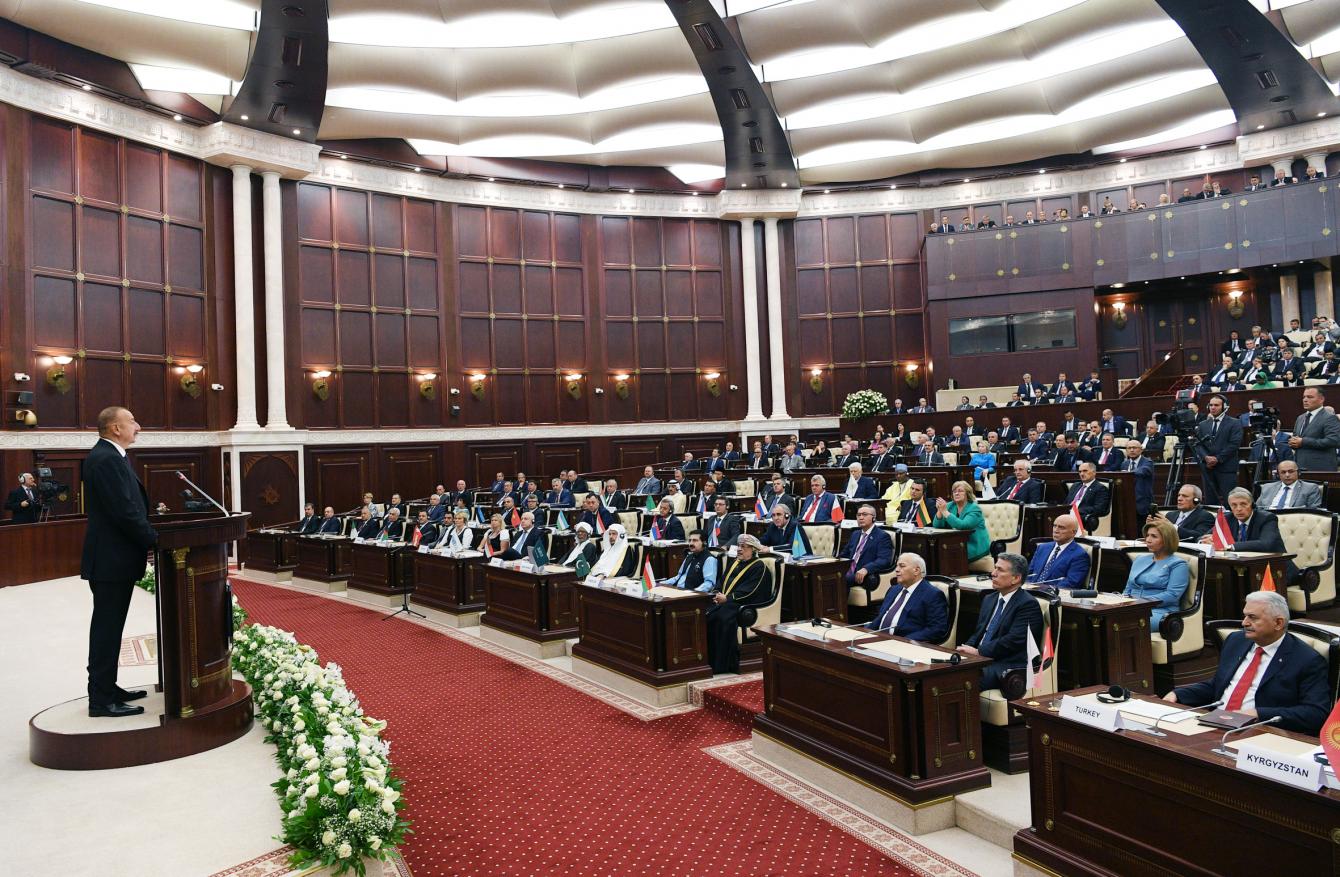
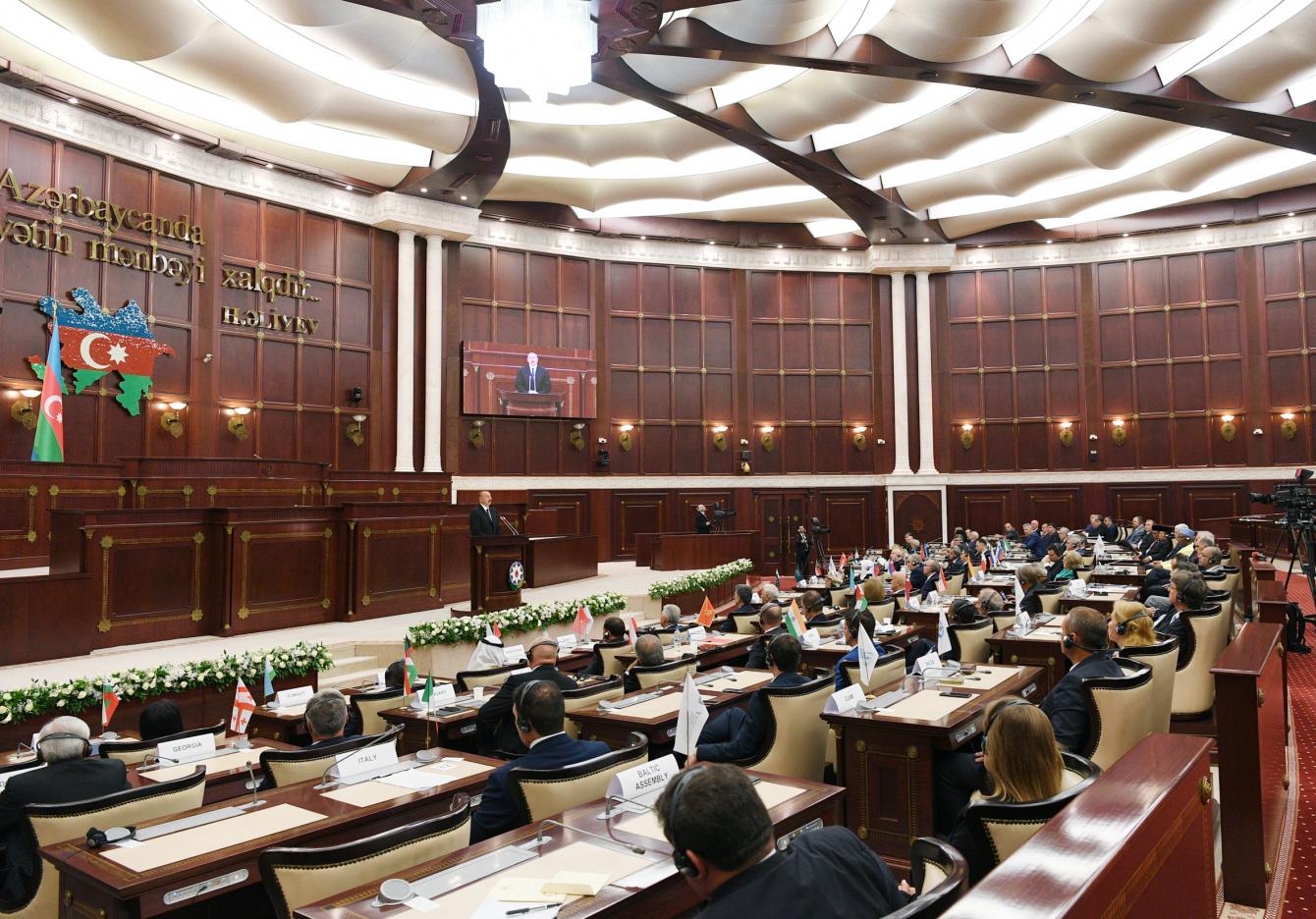
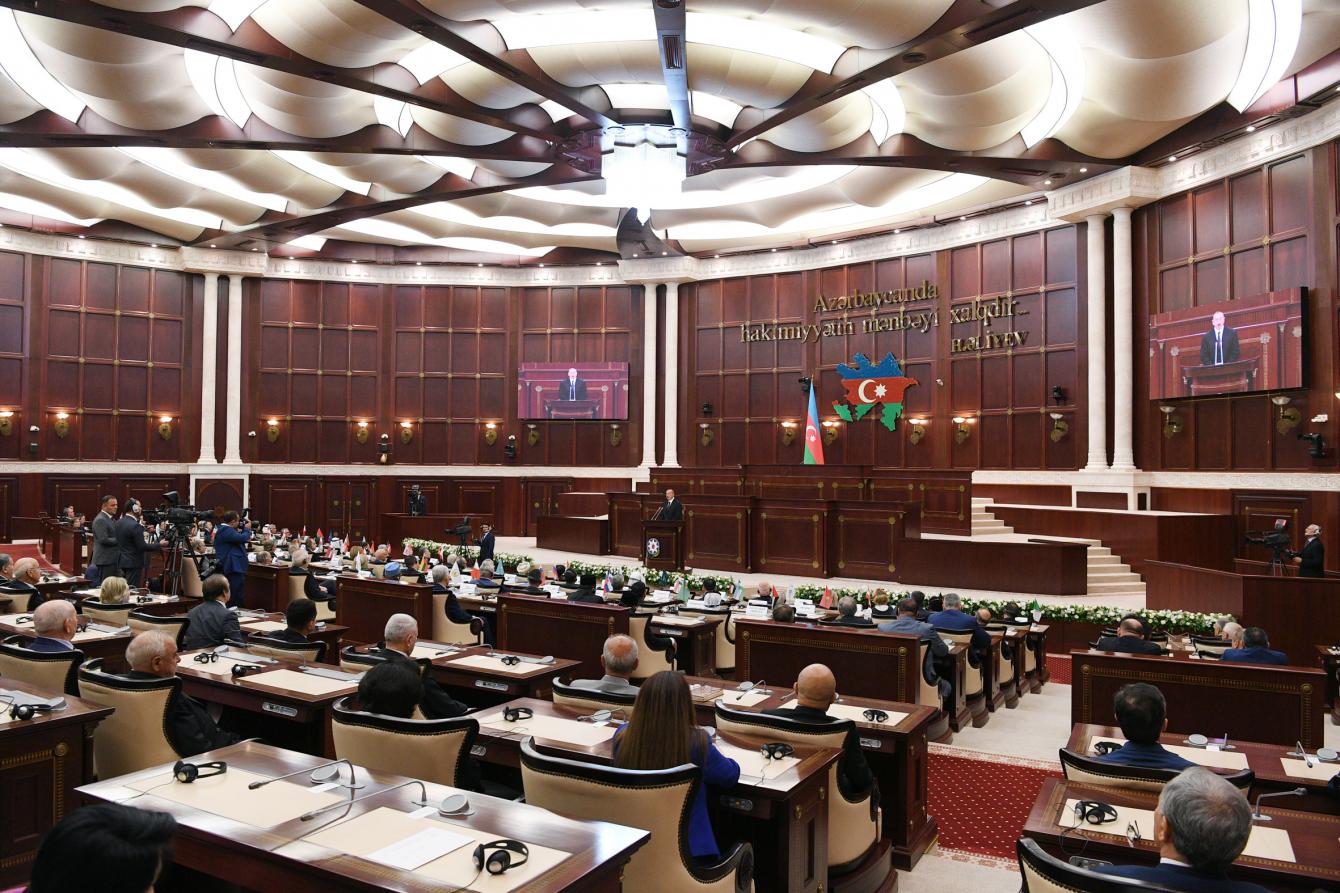
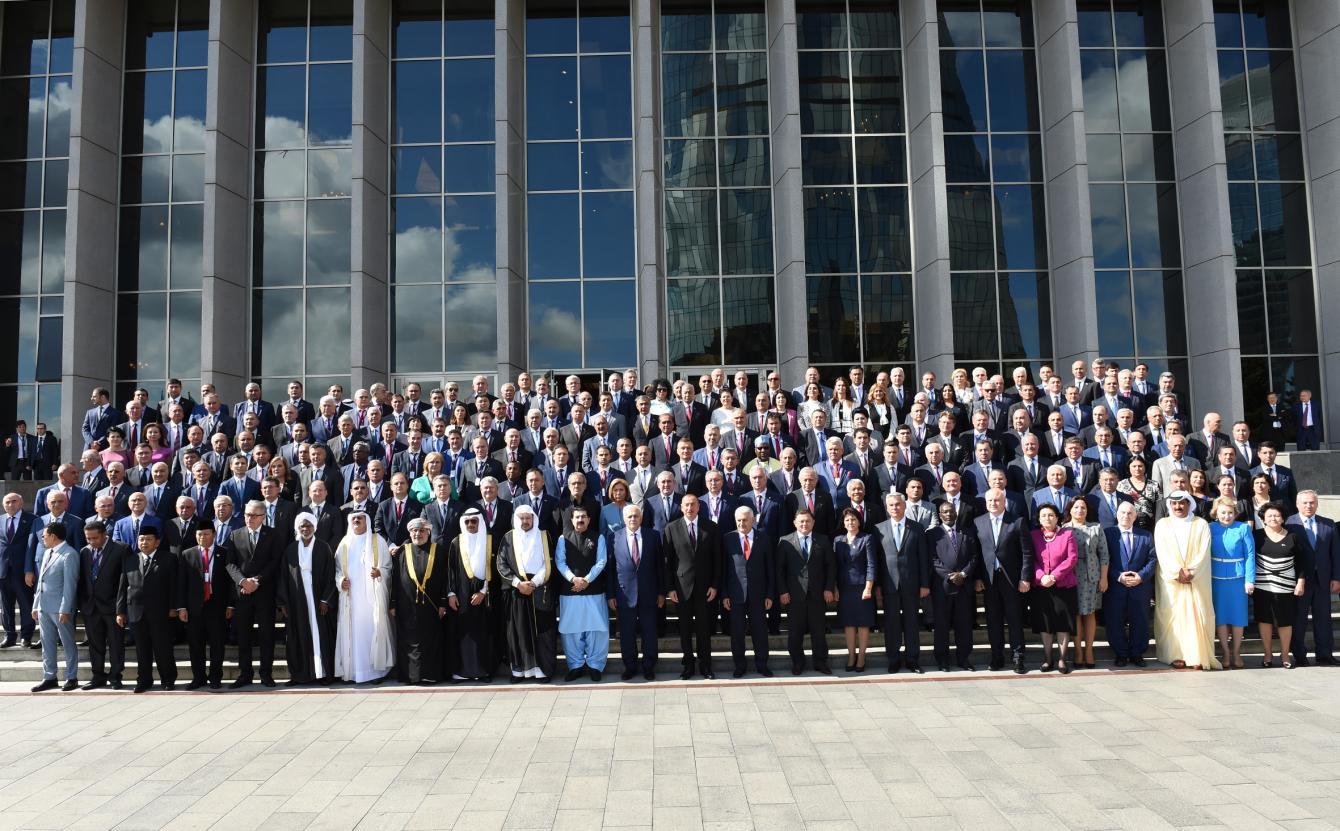
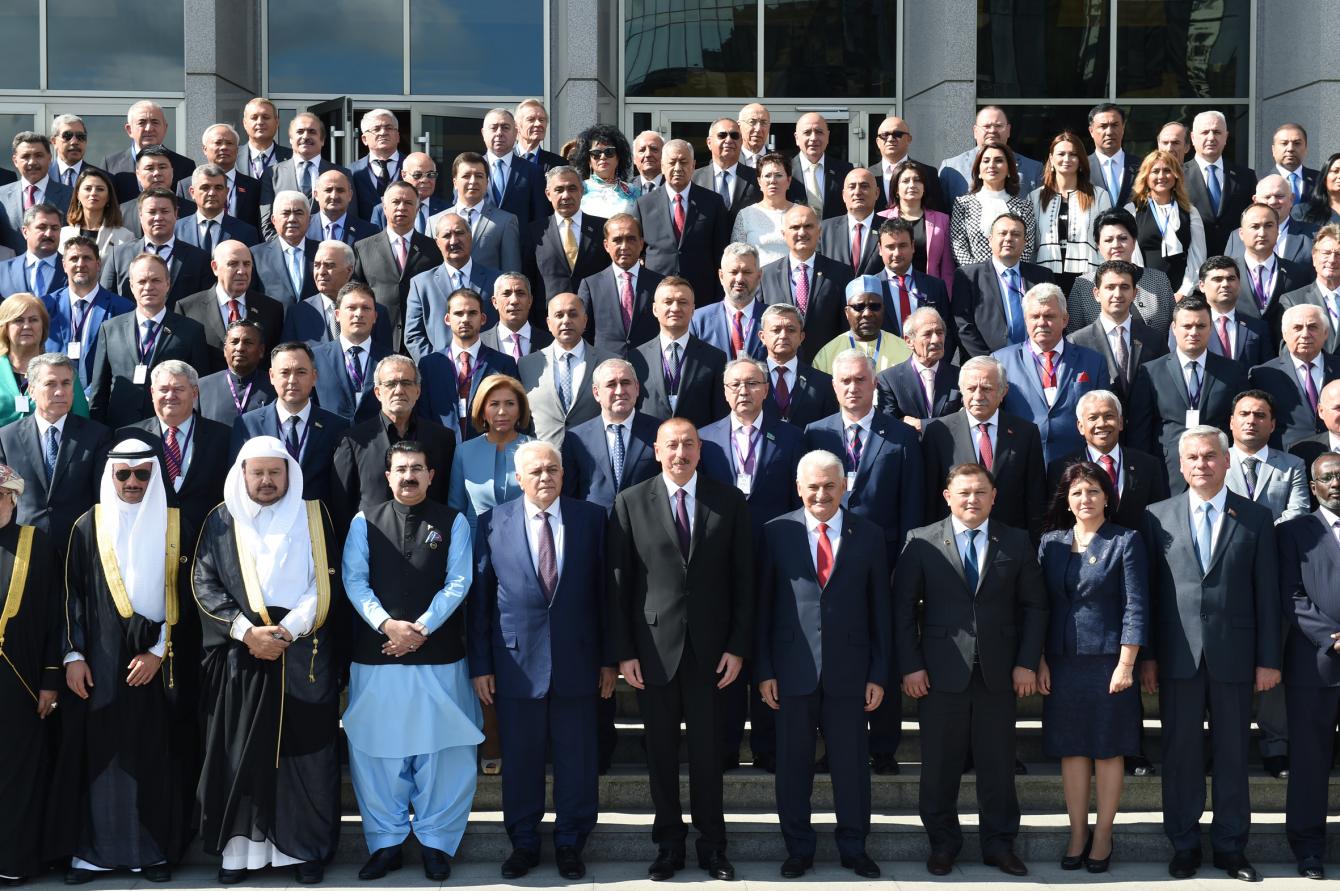
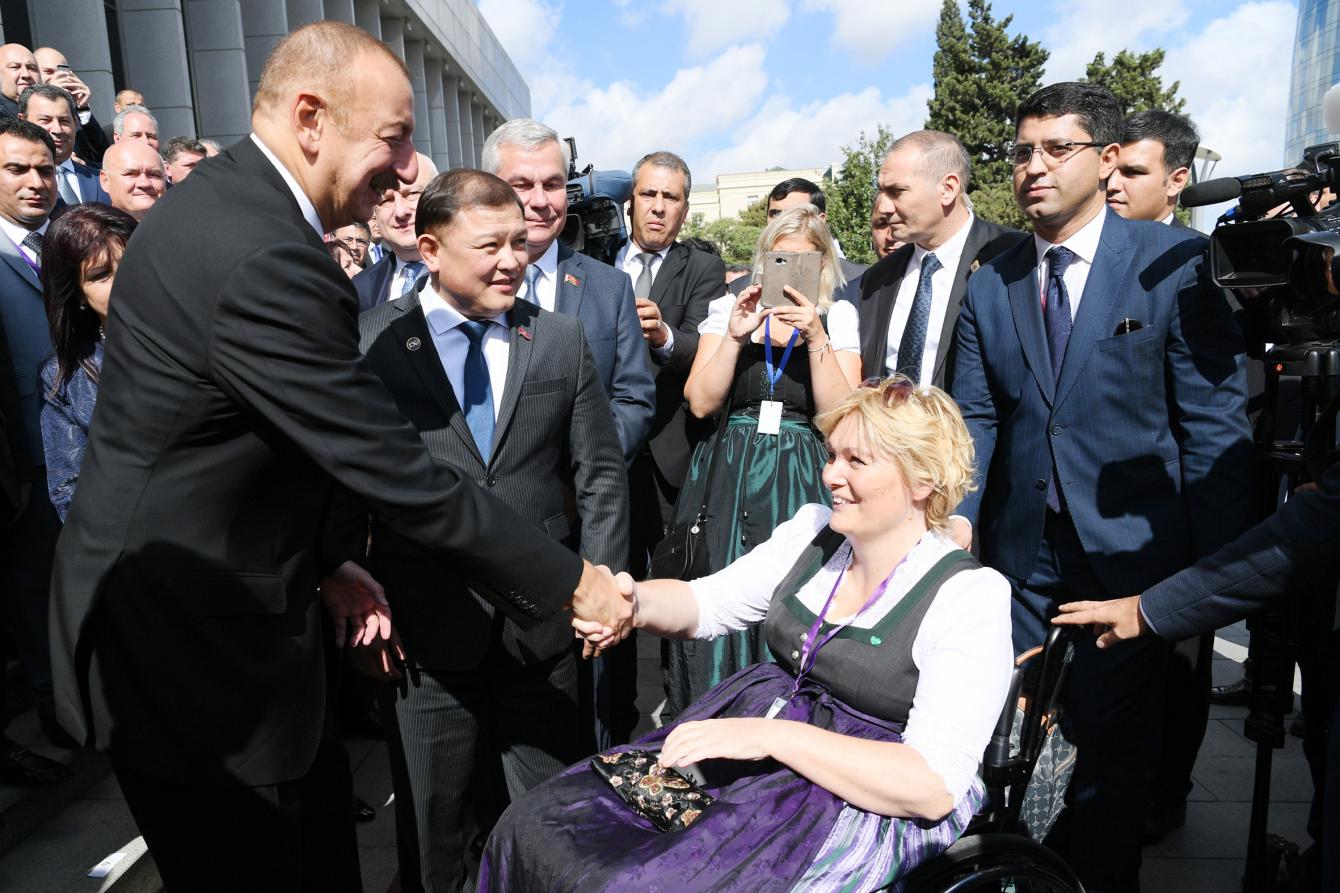
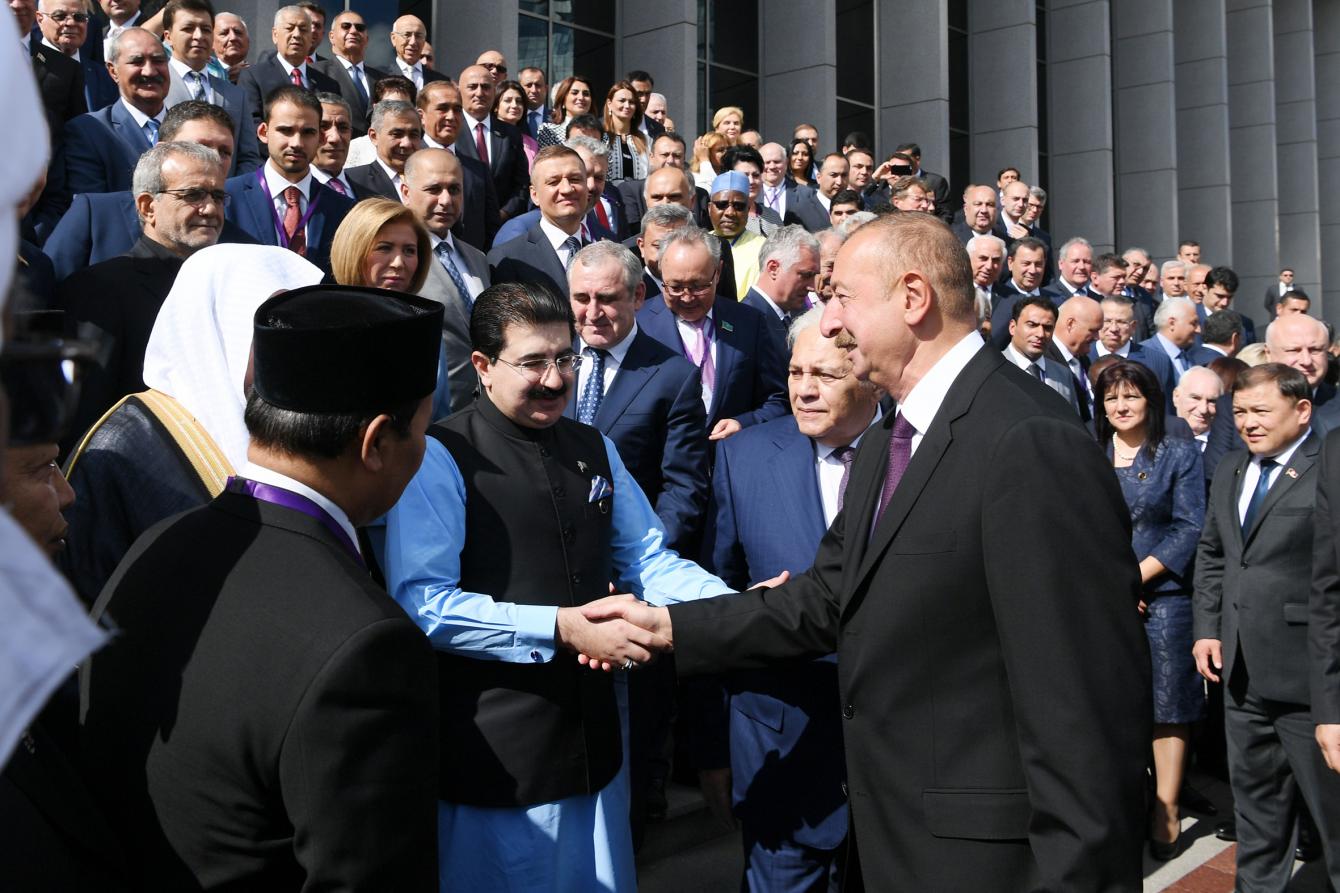
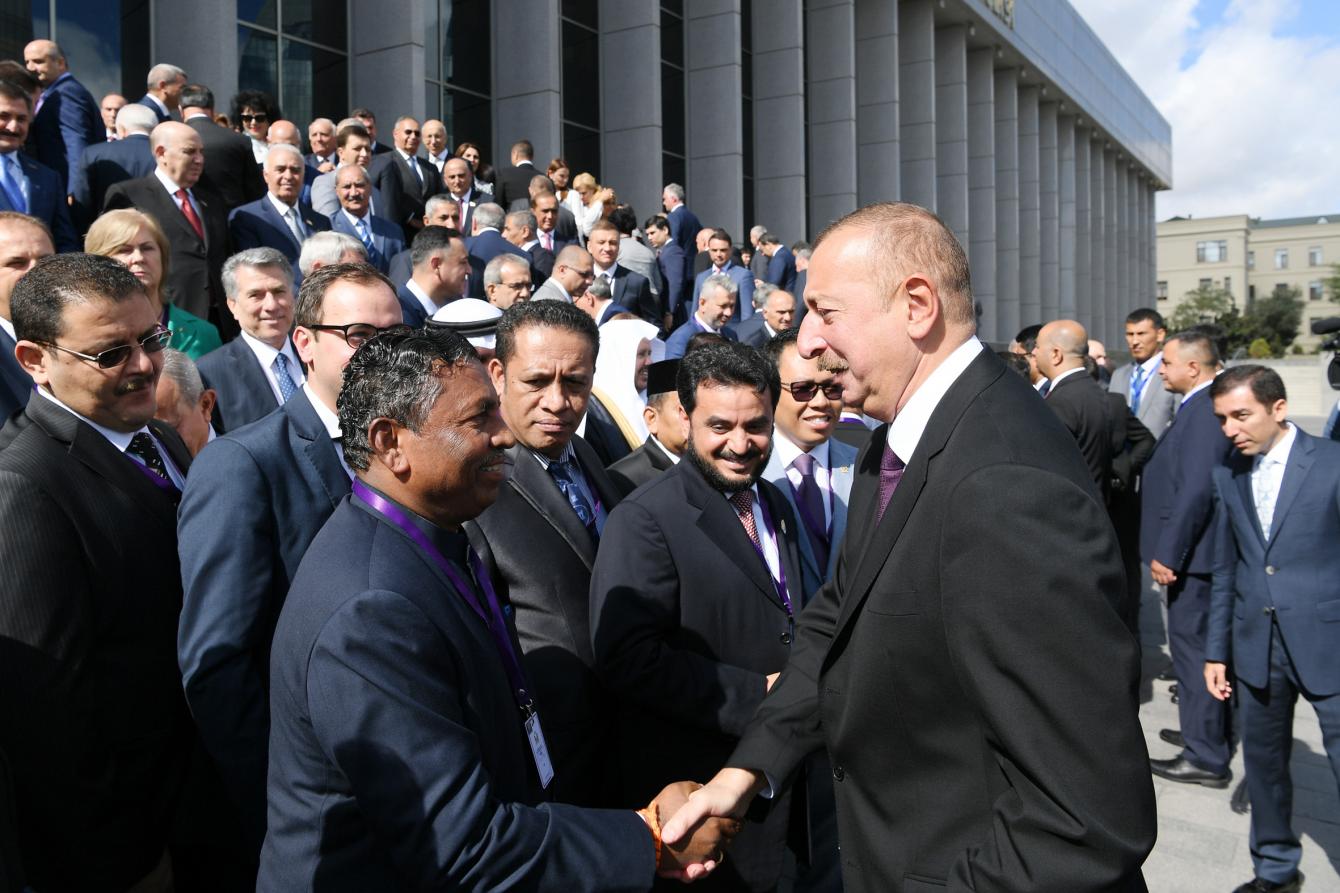
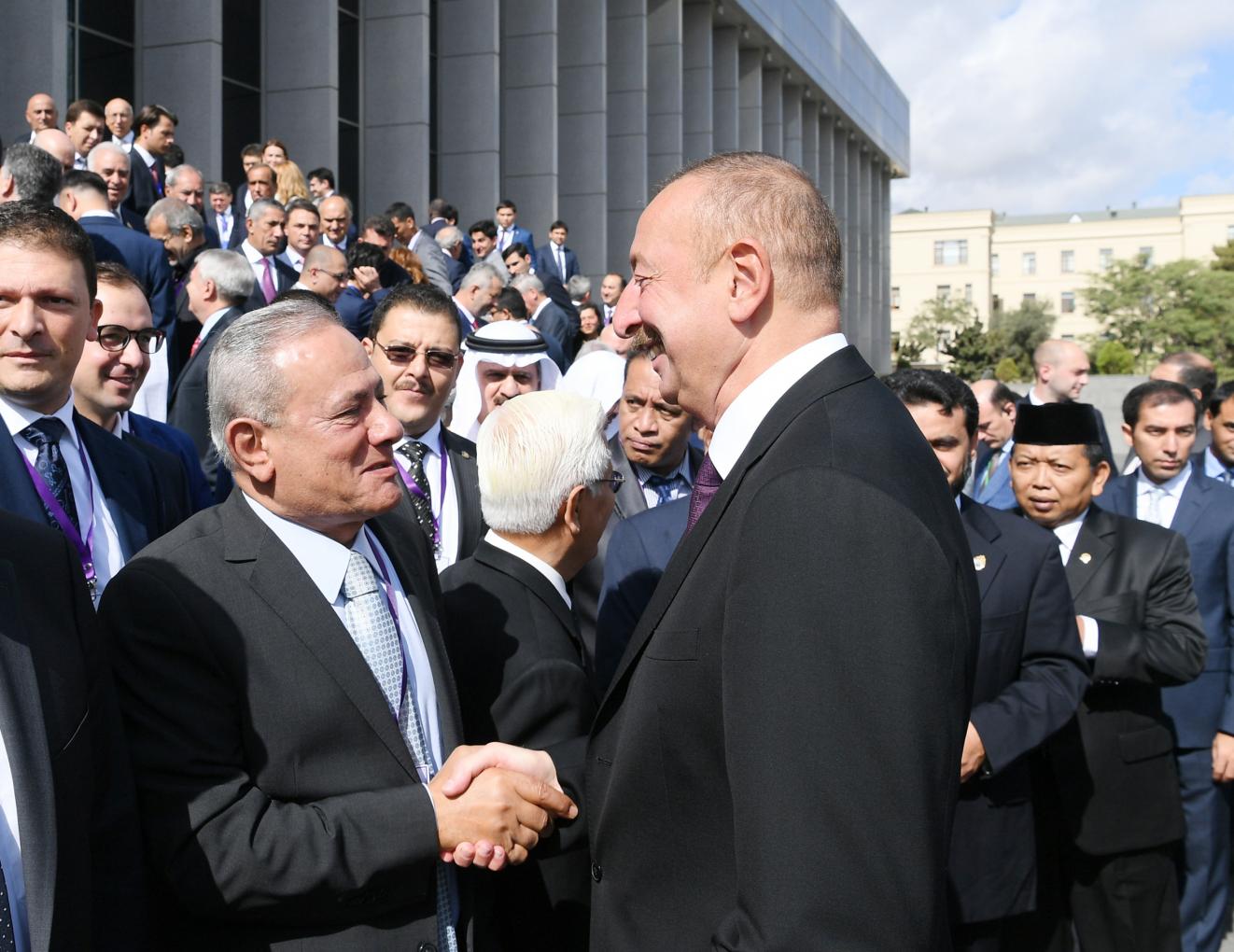
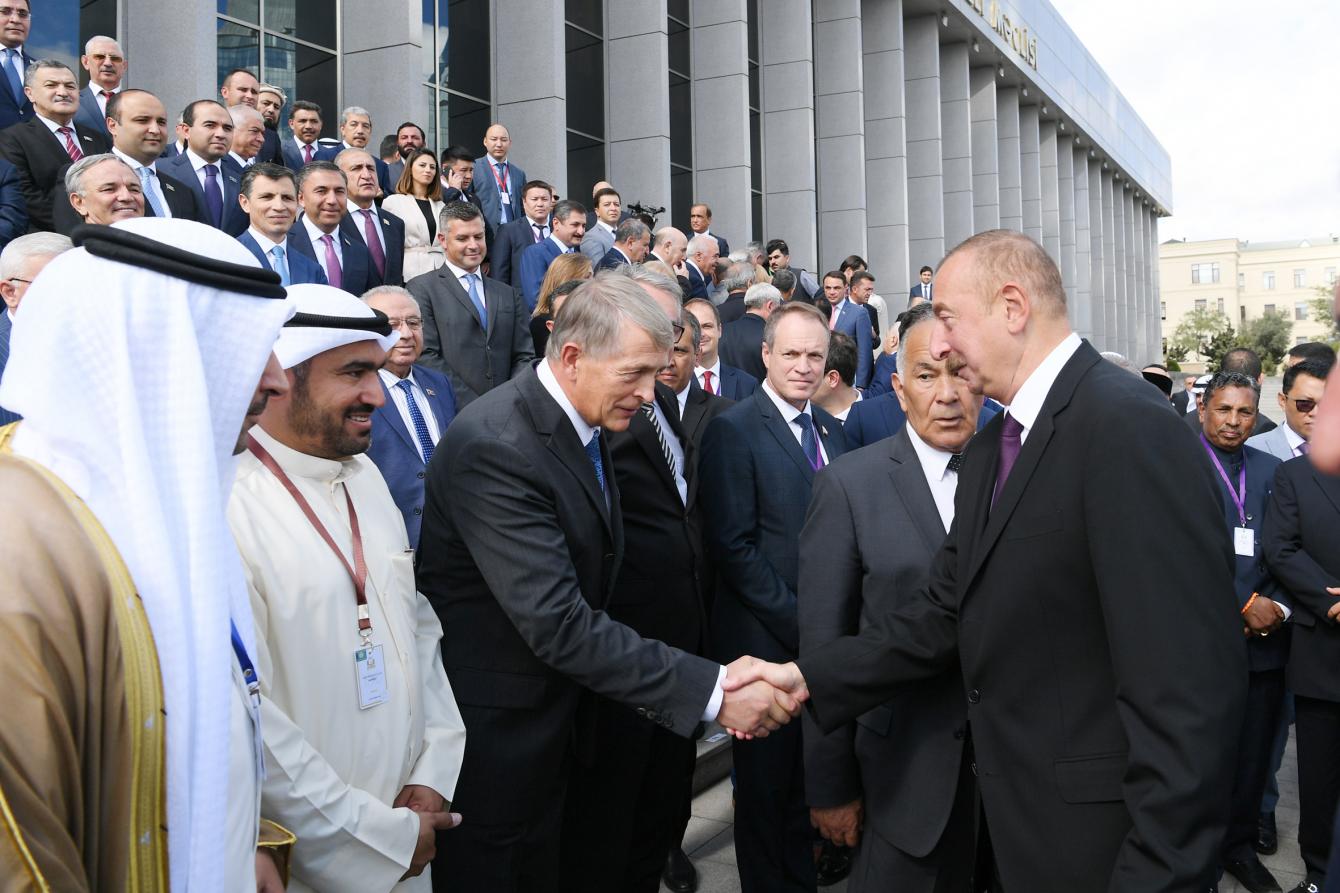
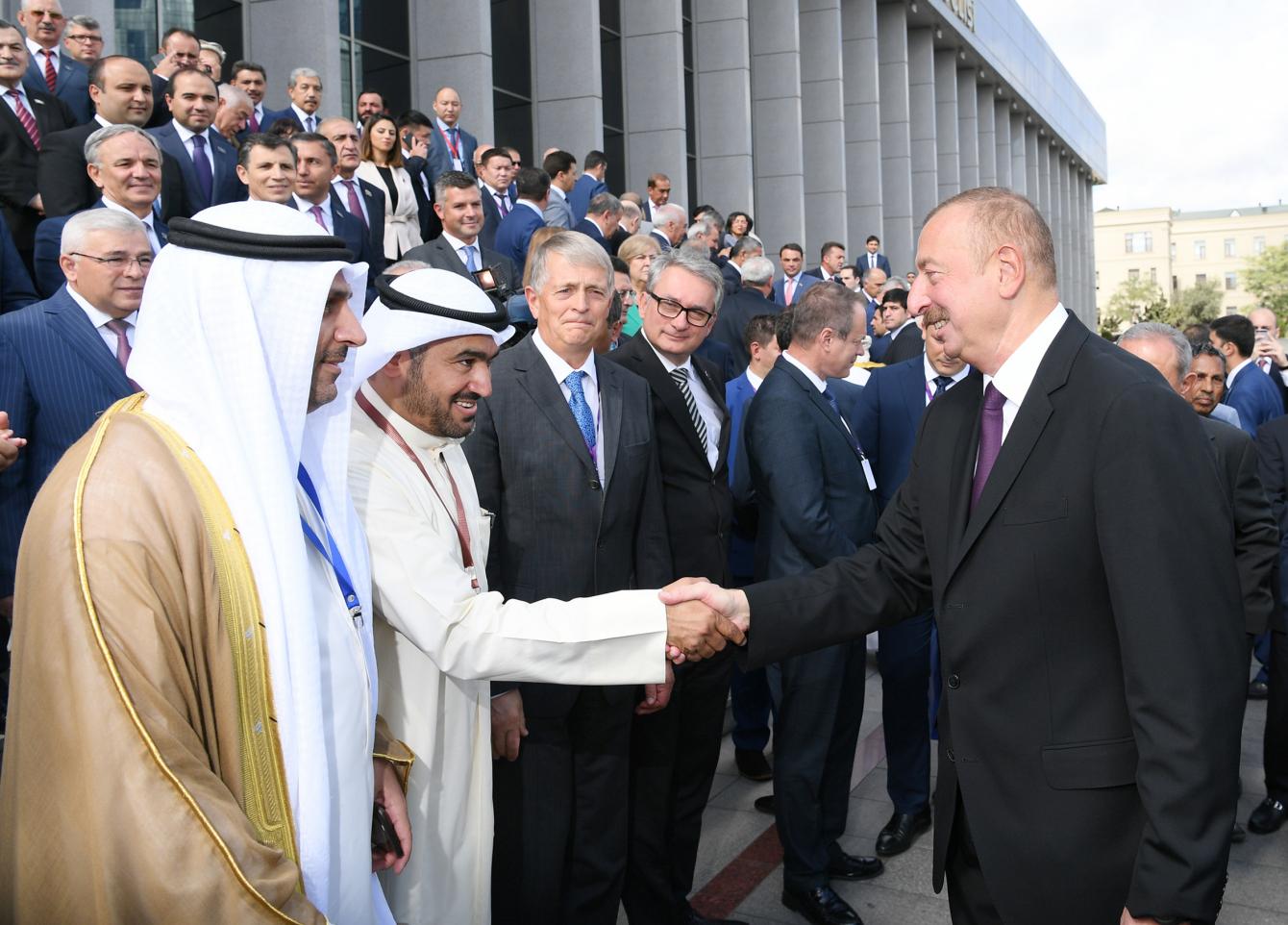
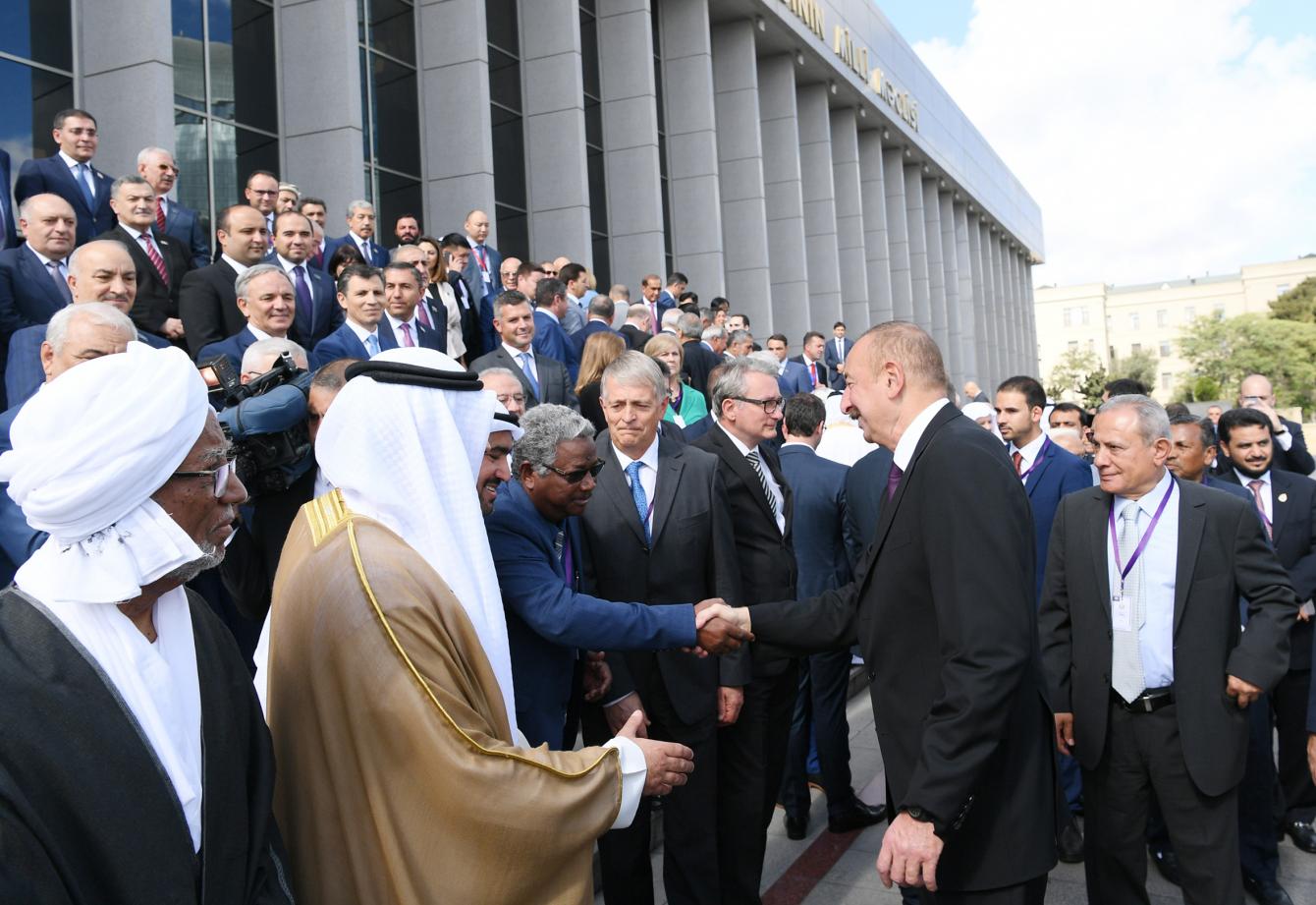
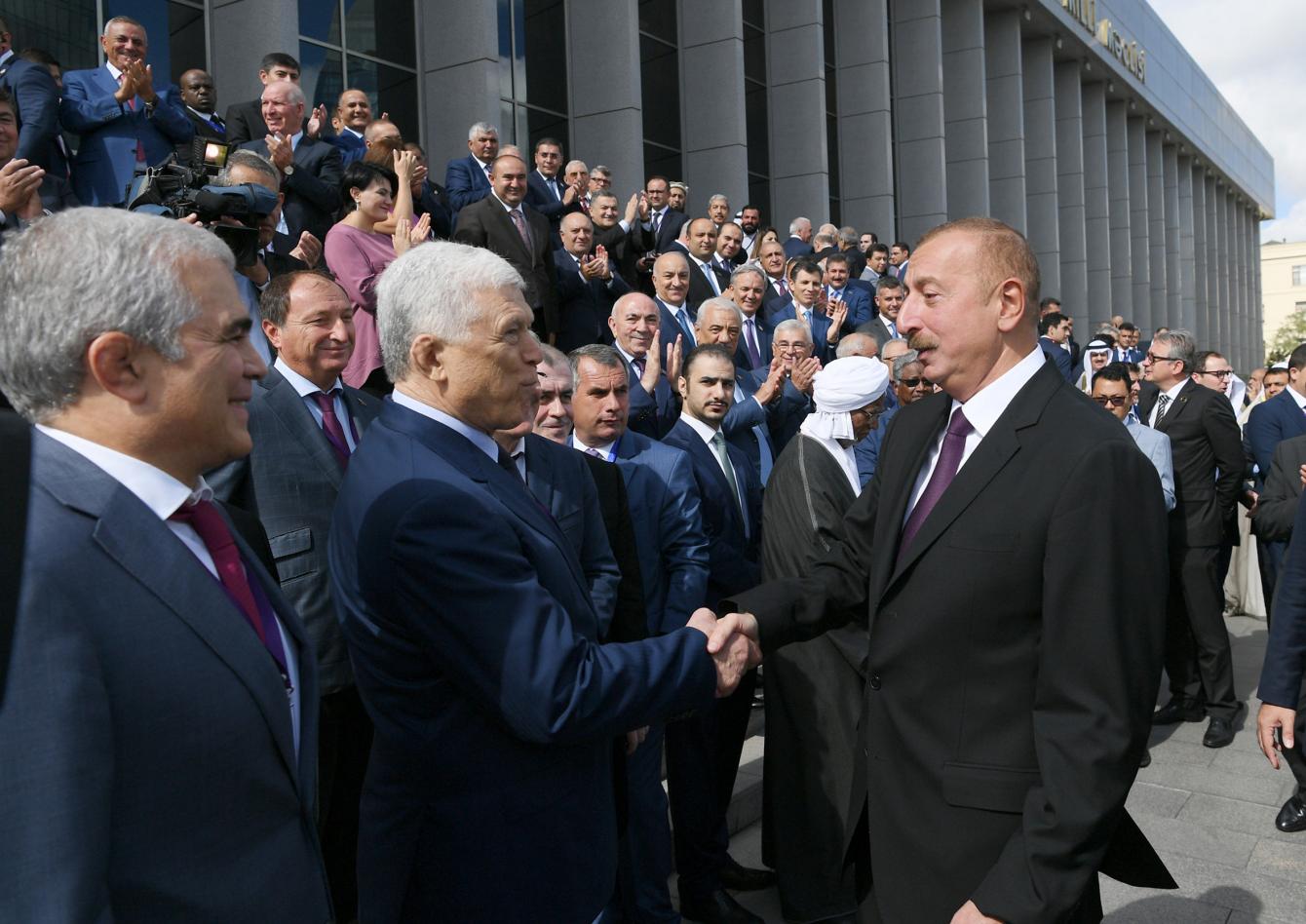
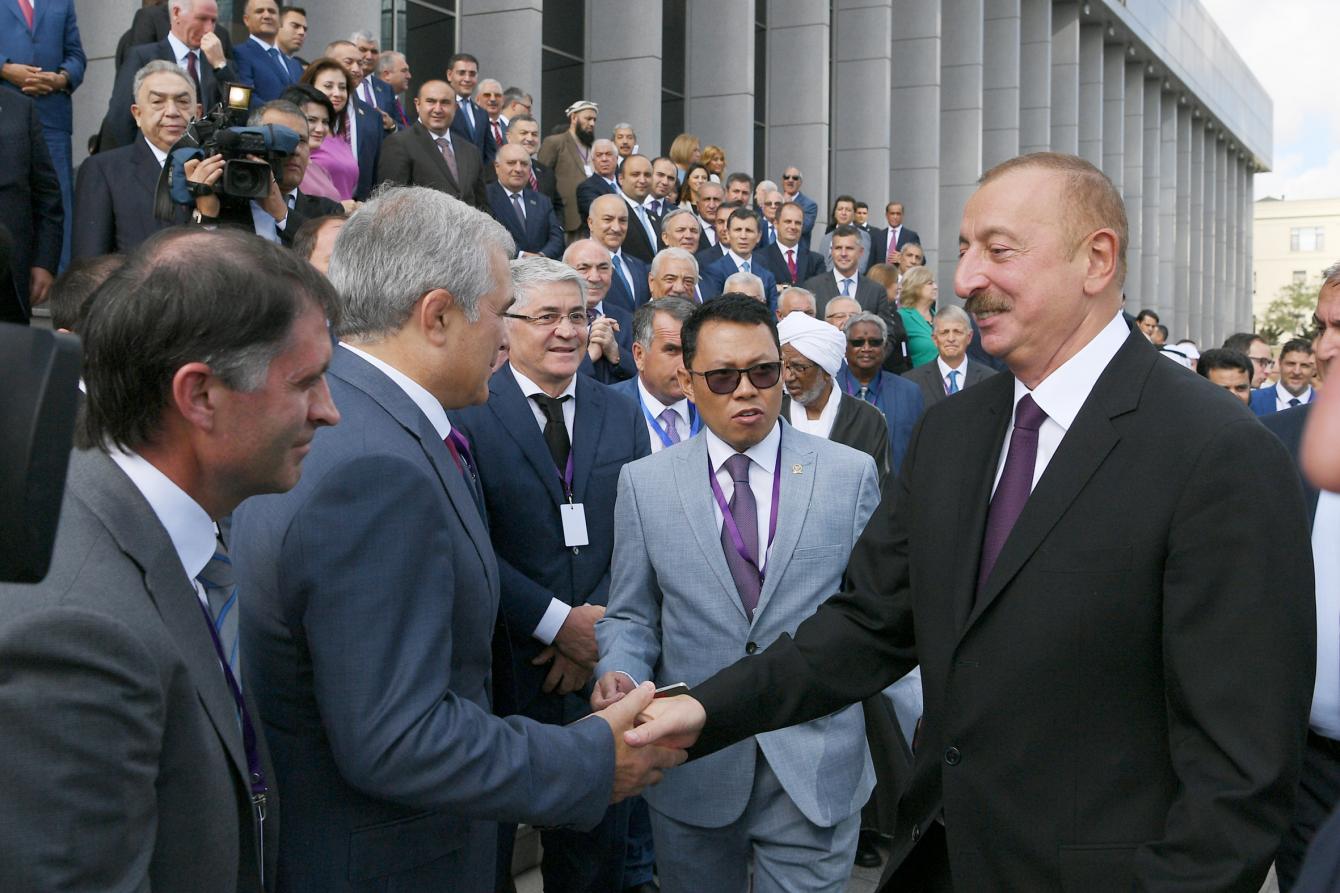
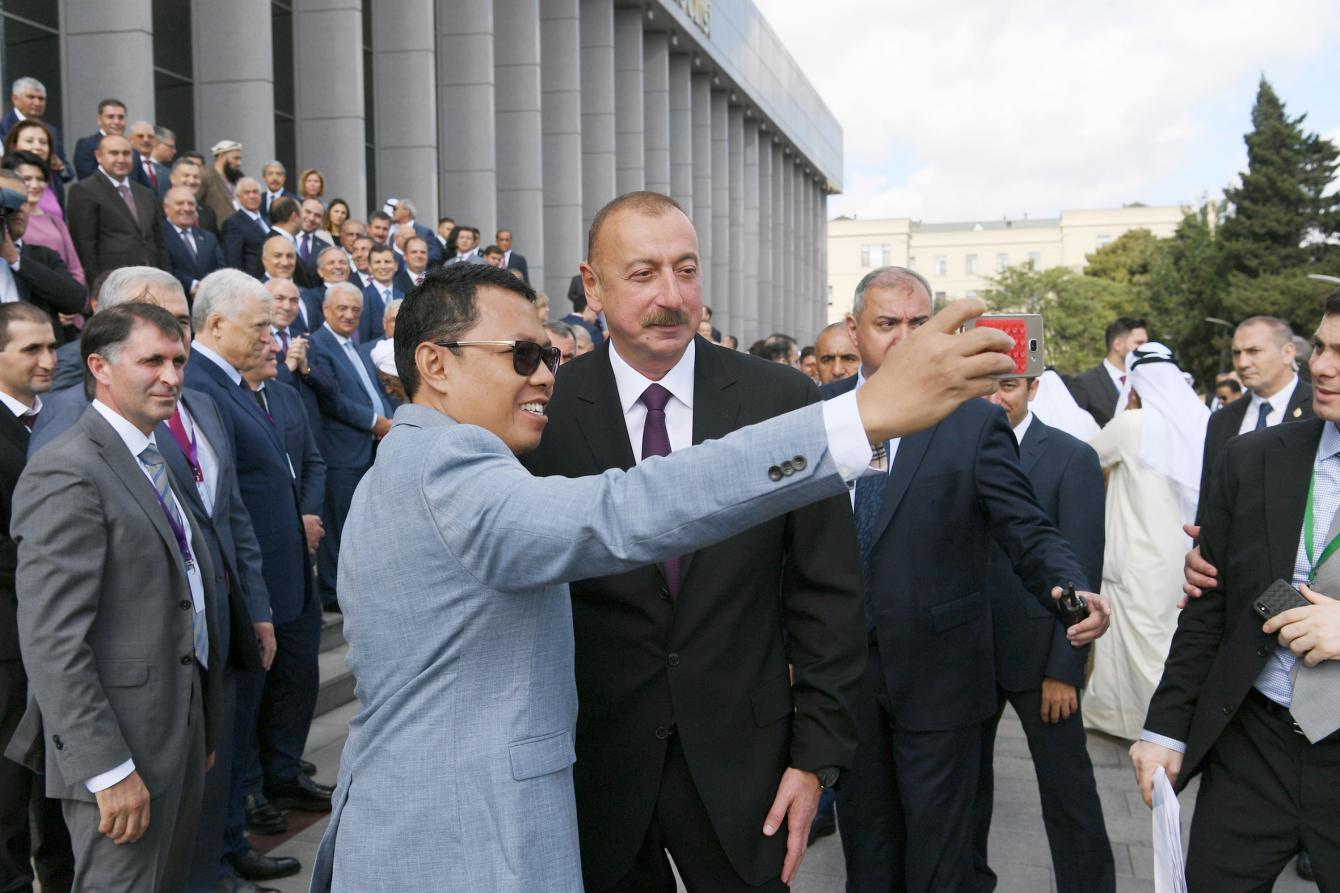
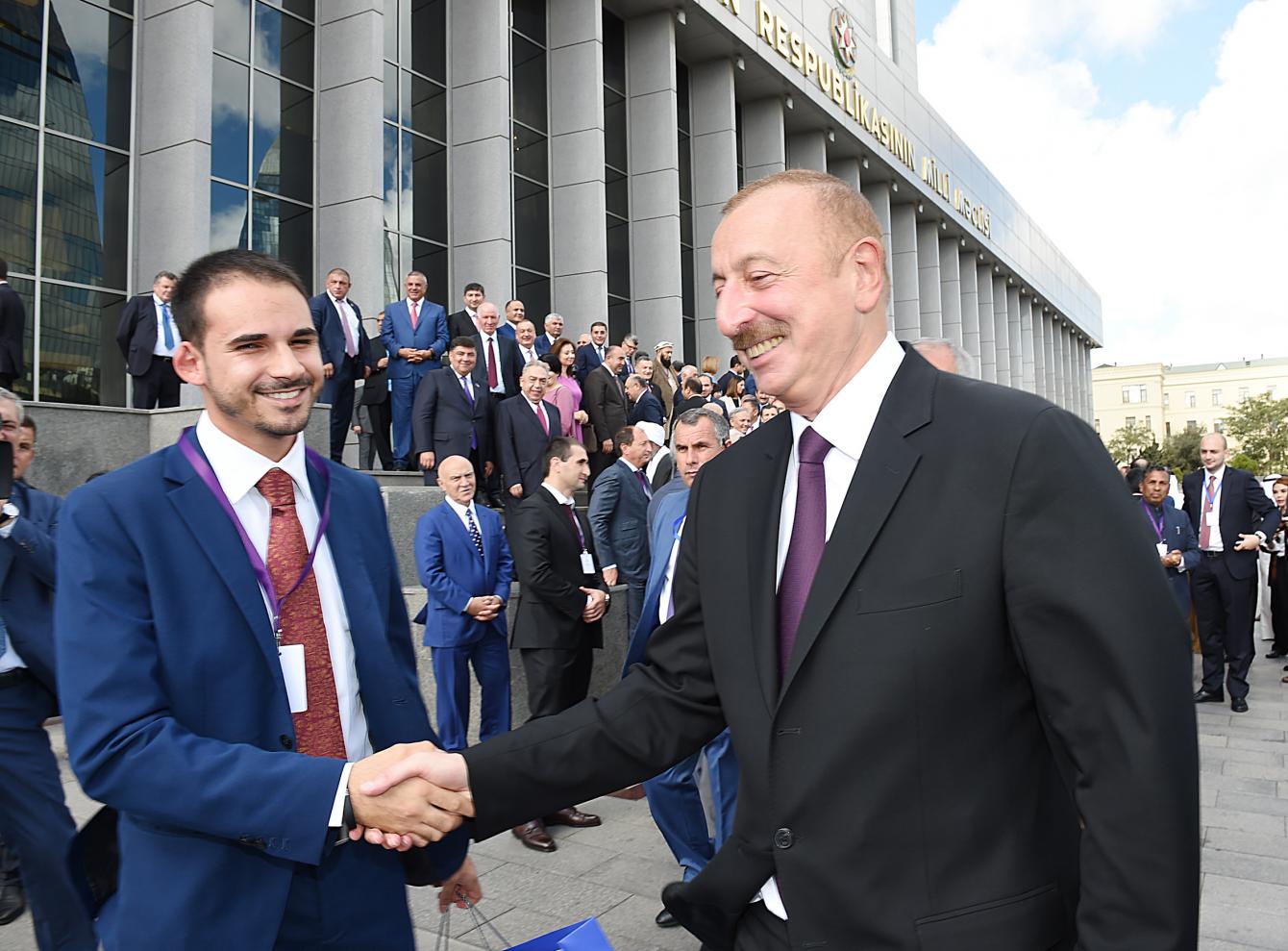

His Excellency Mr. Ilham Aliyev, President of the Republic of Azerbaijan
Excellency,
On the auspicious occasion of the celebration of the National Day of the Republic of Azerbaijan on 28 May, the Government and people of the Republic of South Africa join me in...
28 May 2025, 18:37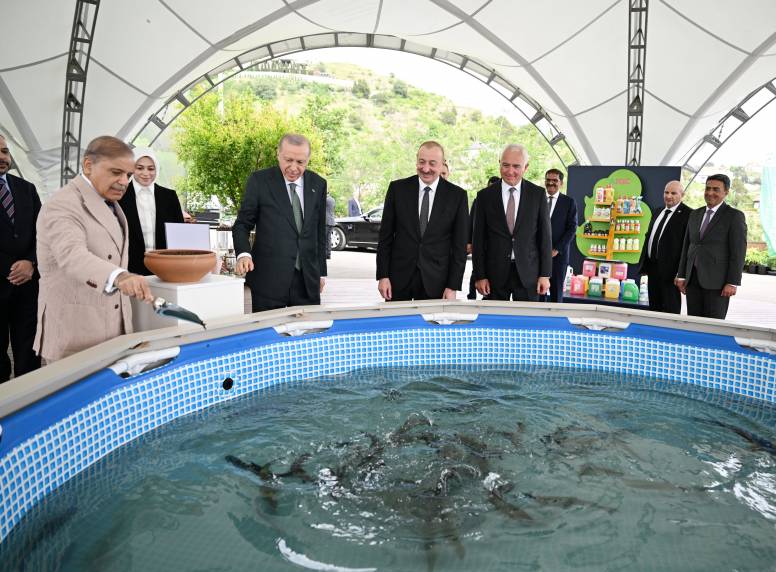
His Excellency Mr. Ilham Aliyev, President of the Republic of Azerbaijan
Dear President Aliyev,
On behalf of the American people, I want to congratulate you and the people of Azerbaijan on your Independence Day.
We value our relationship with the Republic of...
28 May 2025, 17:40His Excellency Mr. Ilham Aliyev, President of the Republic of Azerbaijan
Dear Mr. President,
On the occasion of Azerbaijan's Independence Day, I extend my warmest congratulations to you and the people of Azerbaijan. I wish your country continued progress,...
28 May 2025, 15:25His Excellency Mr. Ilham Aliyev, President of the Republic of Azerbaijan
Your Excellency,
On behalf of the International Secretariat of the Organization for Democracy and Economic Development - GUAM and me personally, I would like to extend our most sincere...
28 May 2025, 13:58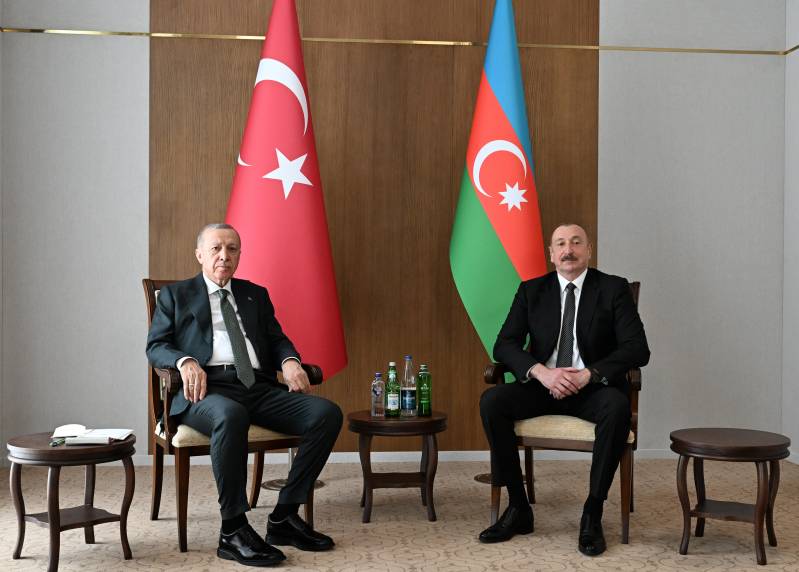
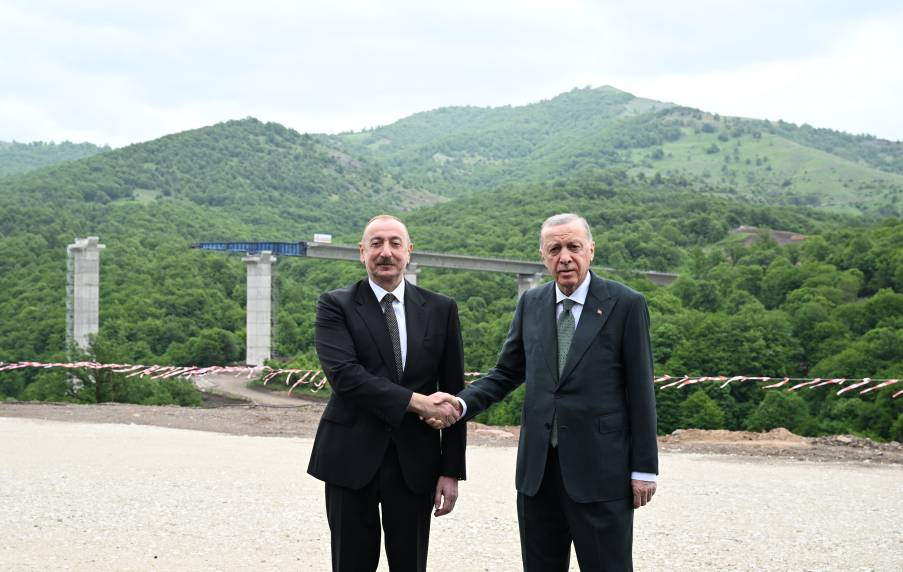
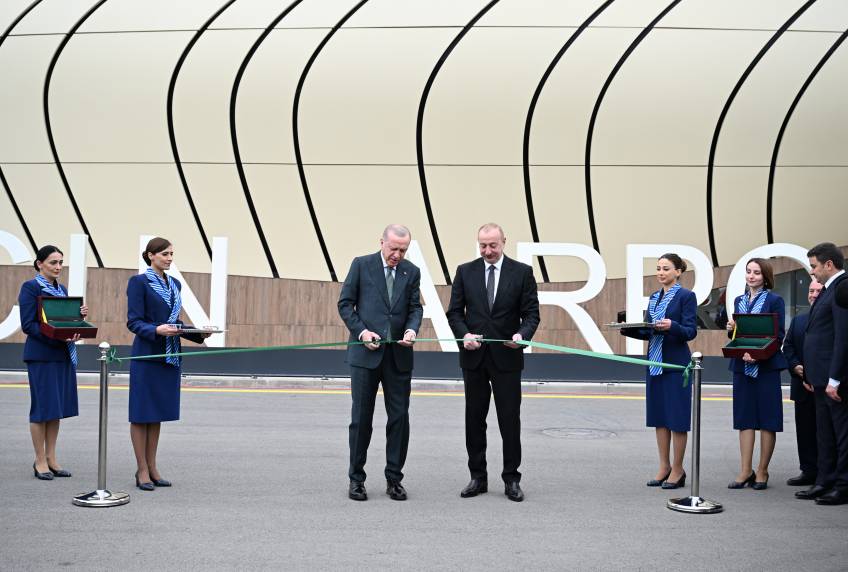
His Excellency Mr. Ilham Aliyev, President of the Republic of Azerbaijan
Dear Mr. President,
On the occasion of the National Day of Azerbaijan, it is with sincere joy that I send Your Excellency, on behalf of the Portuguese people and myself, greetings and wishes of...
27 May 2025, 19:55